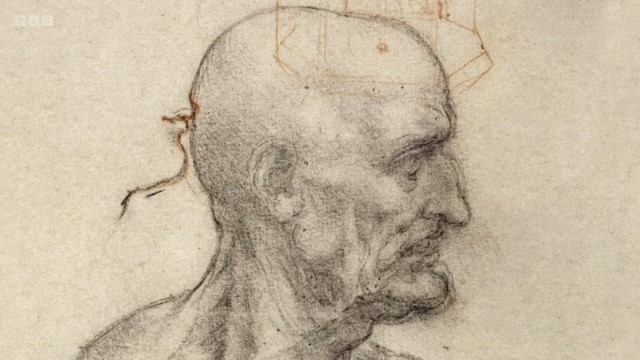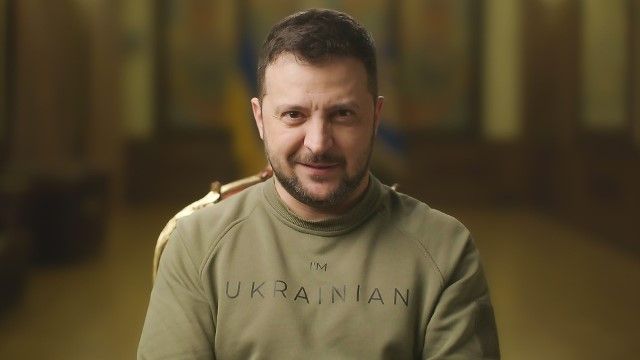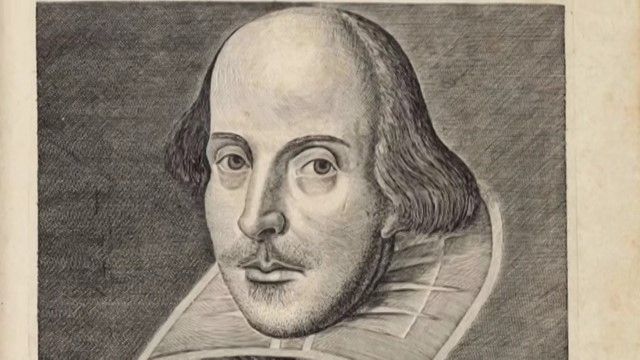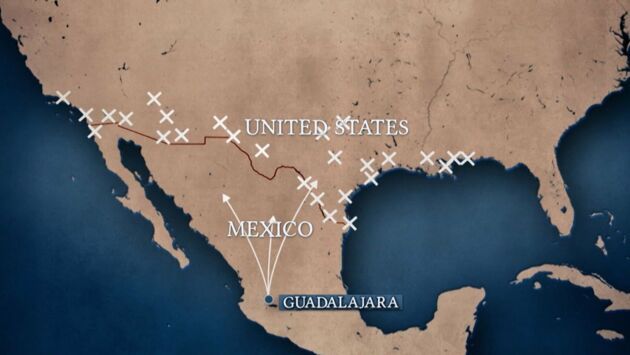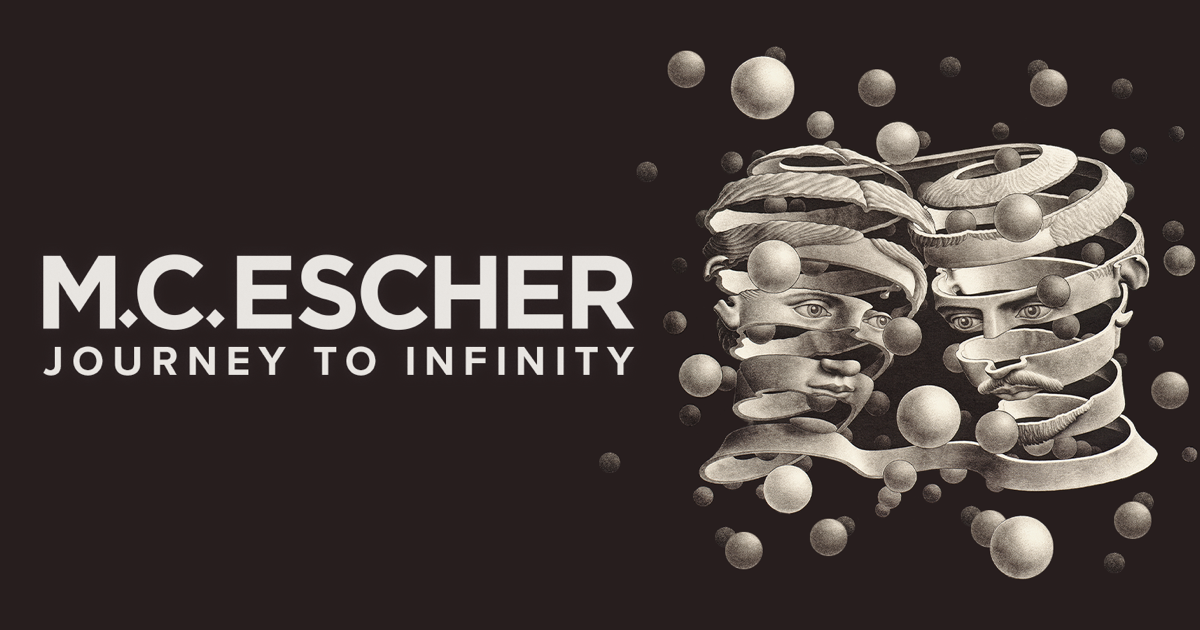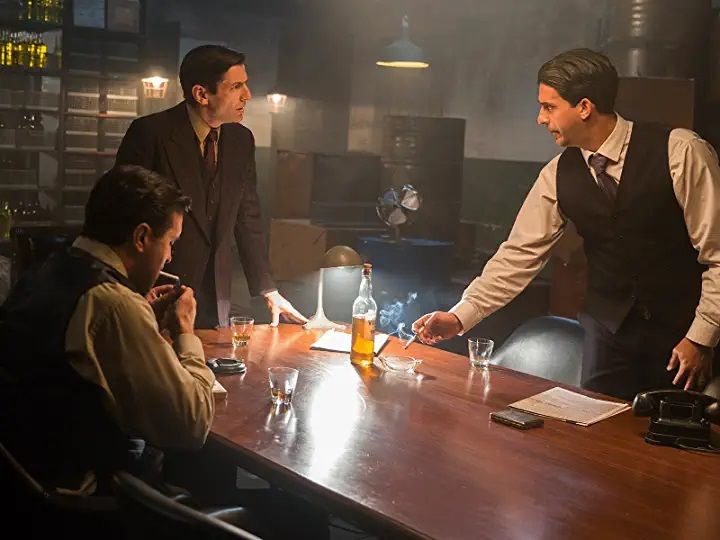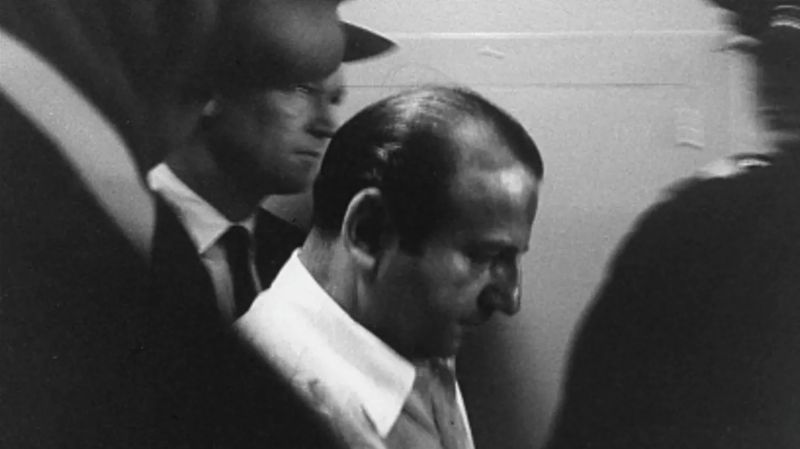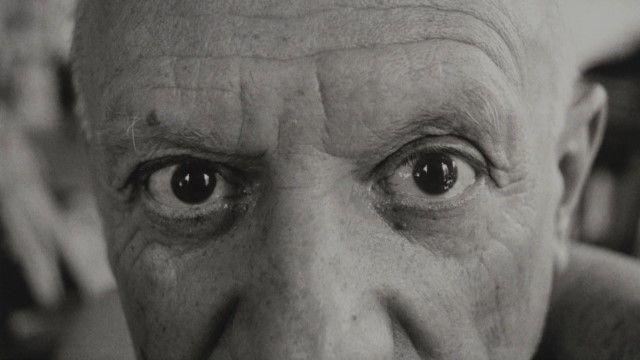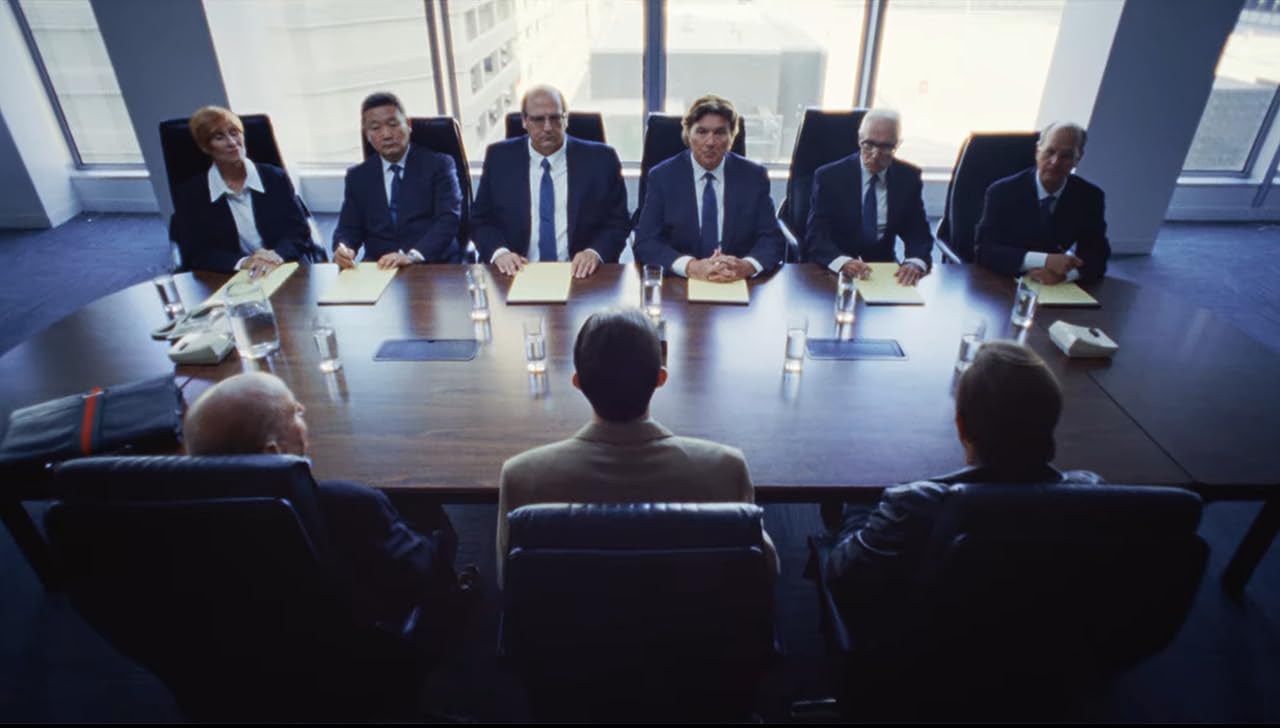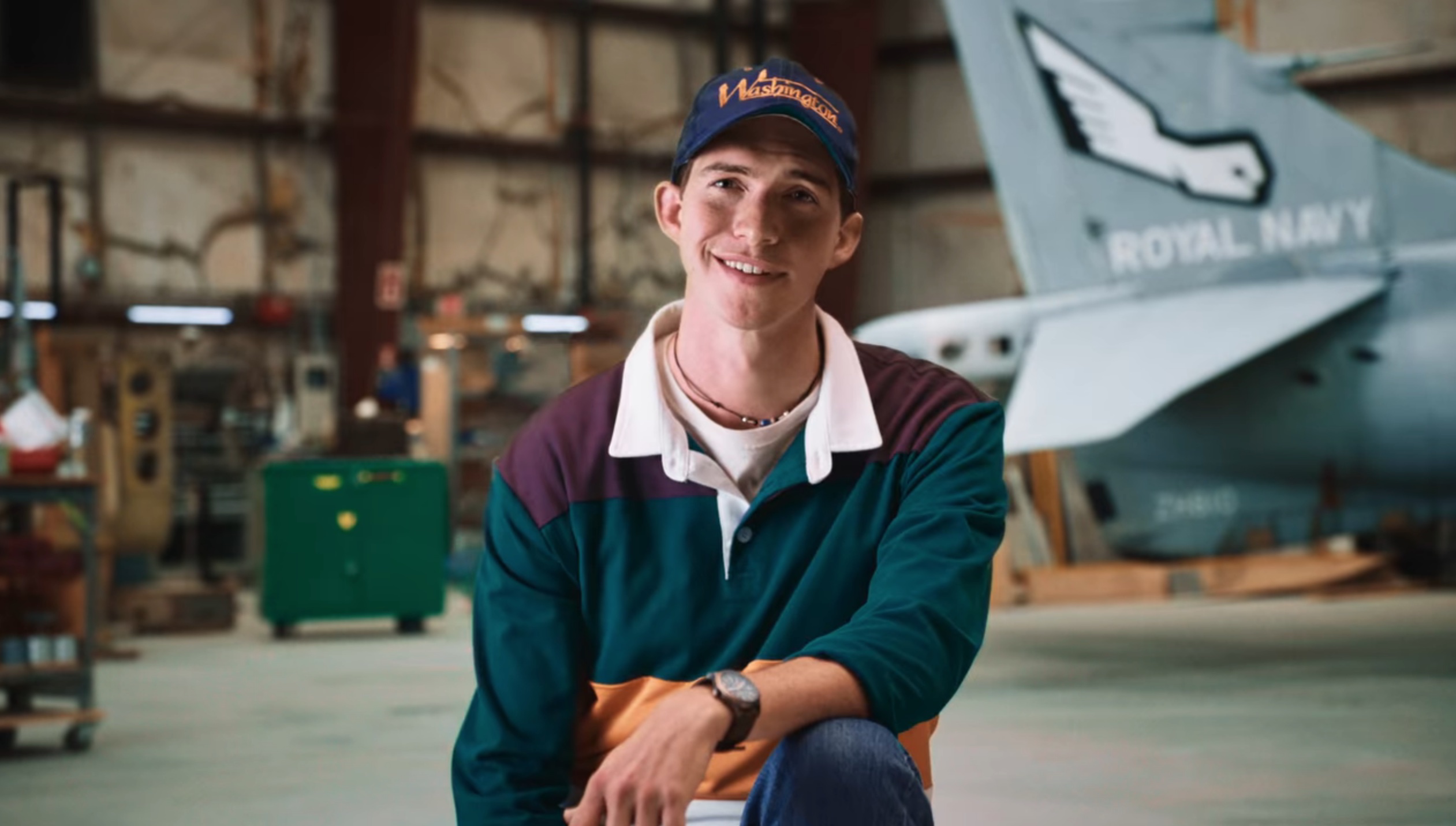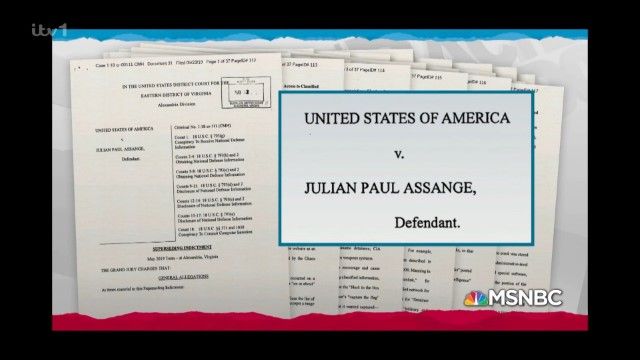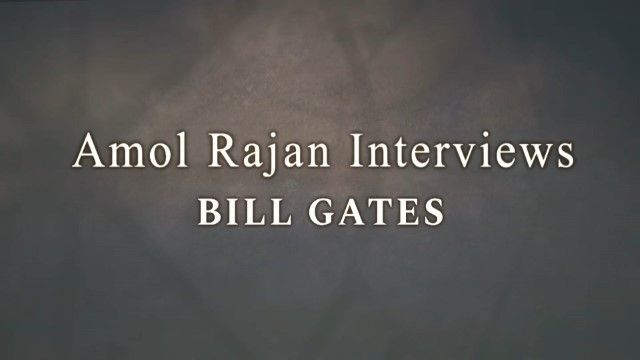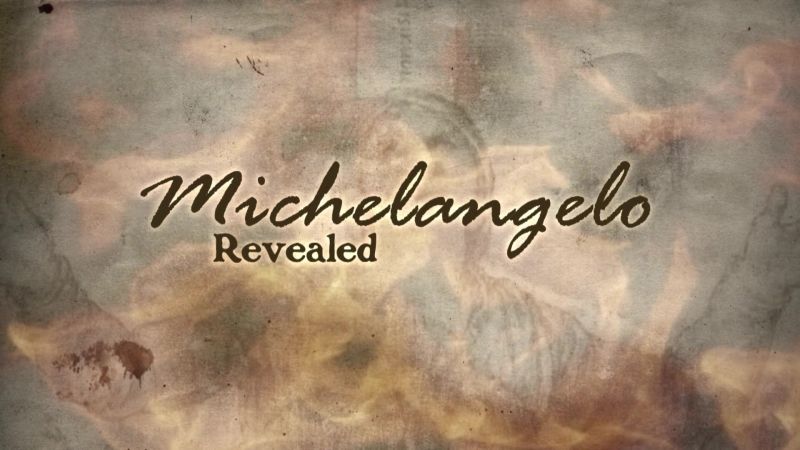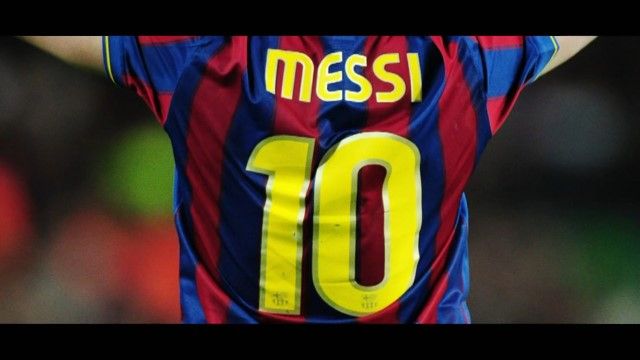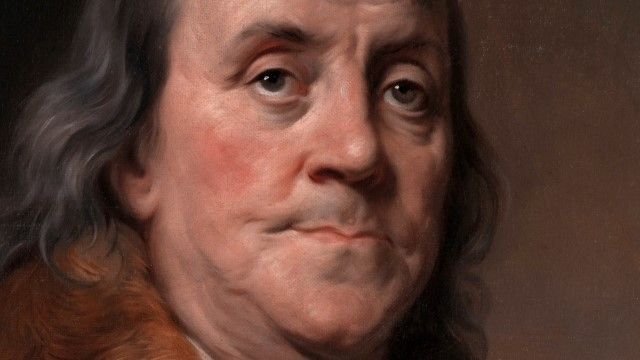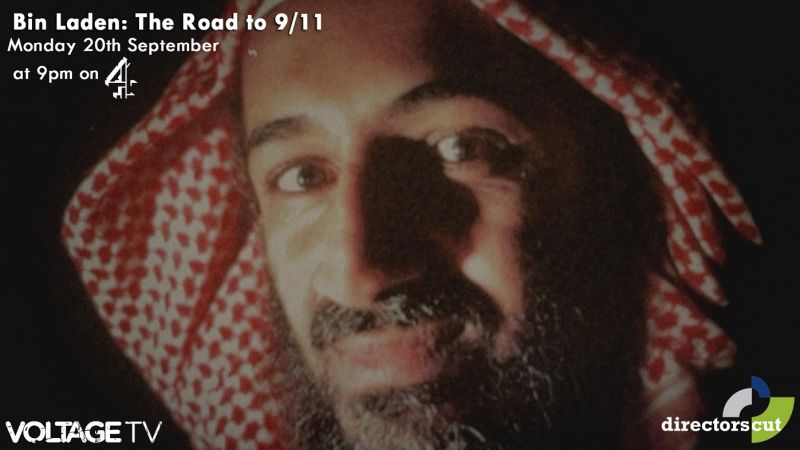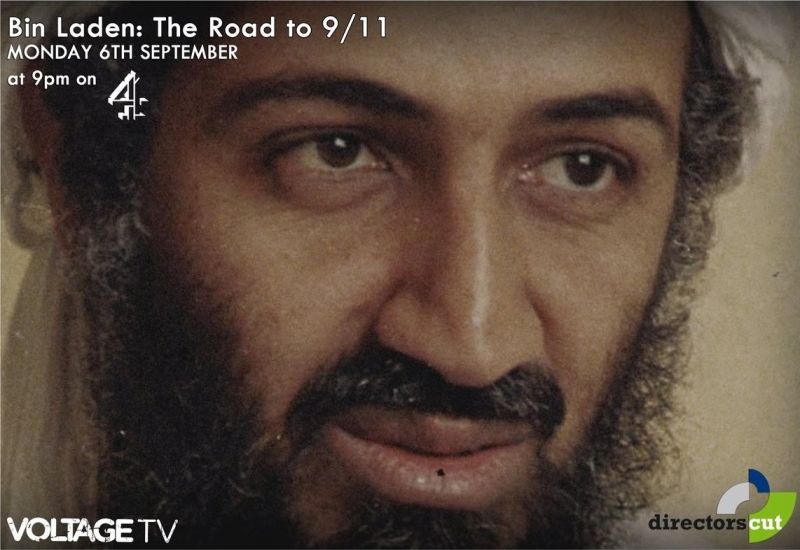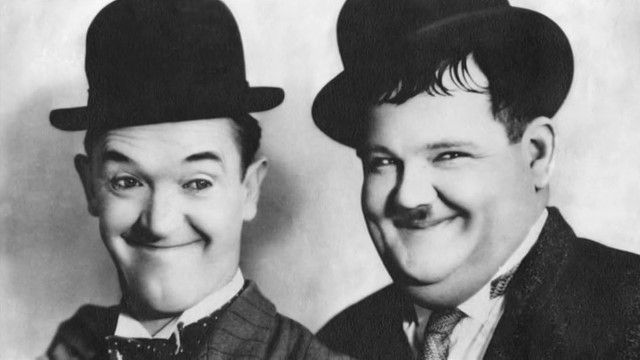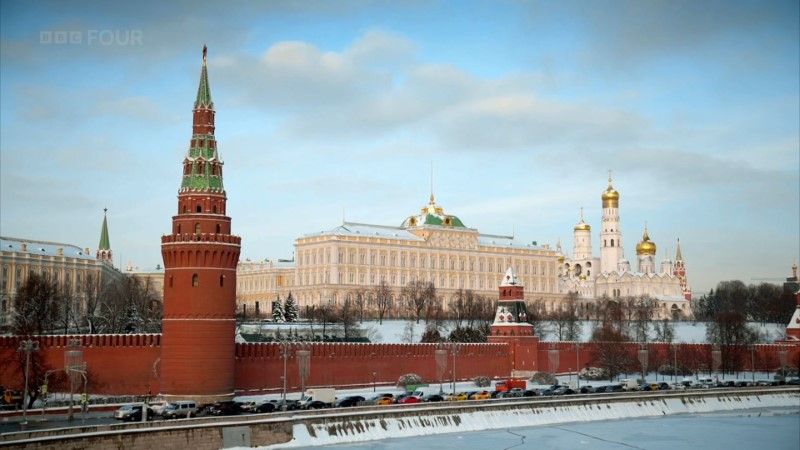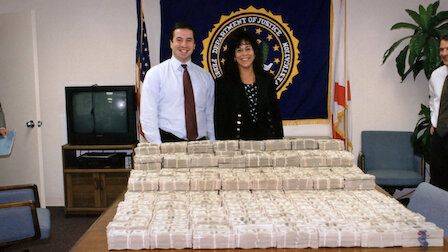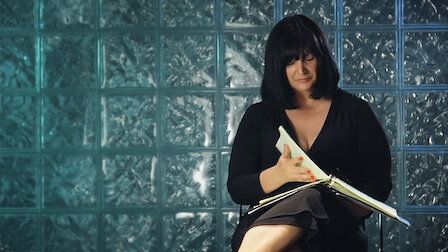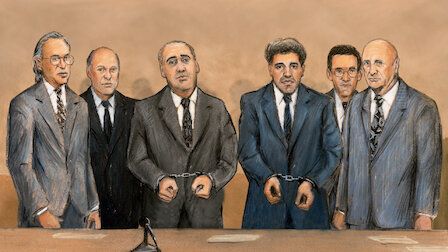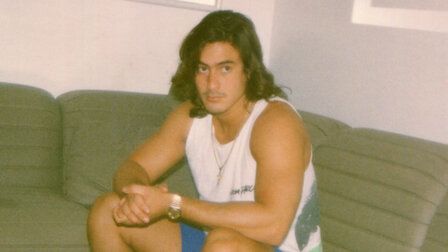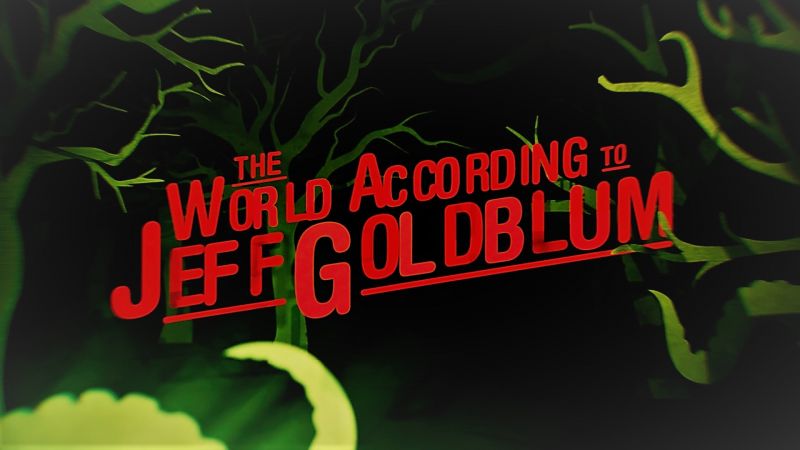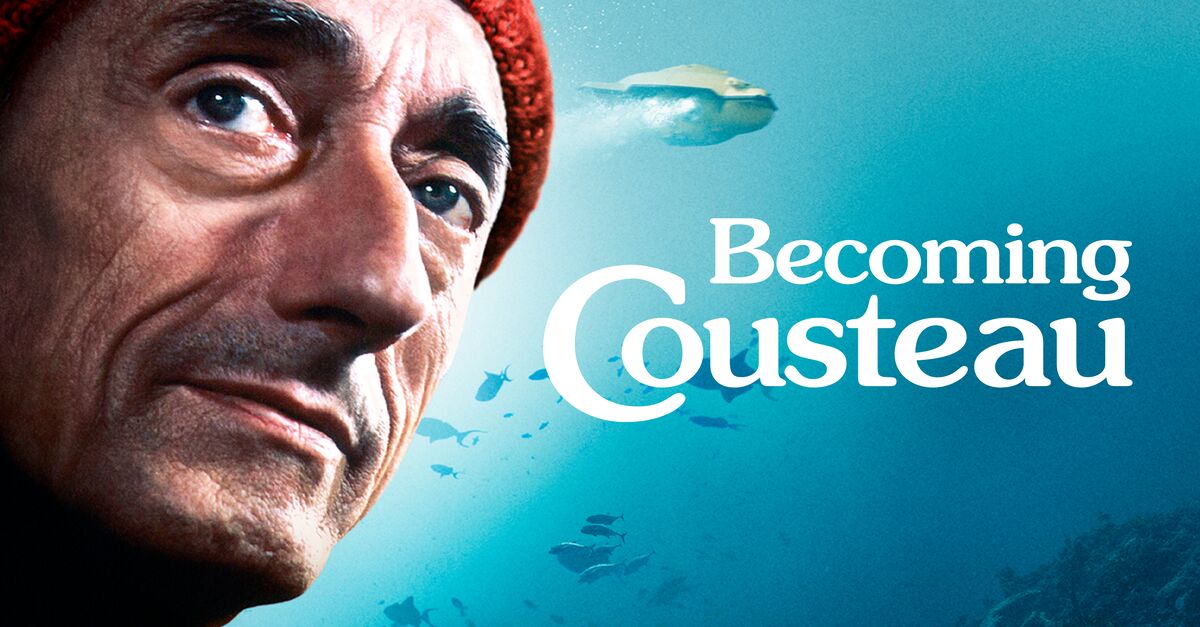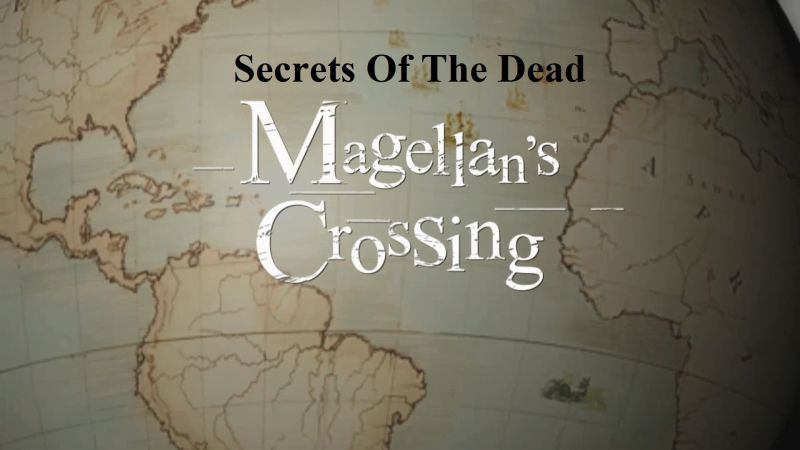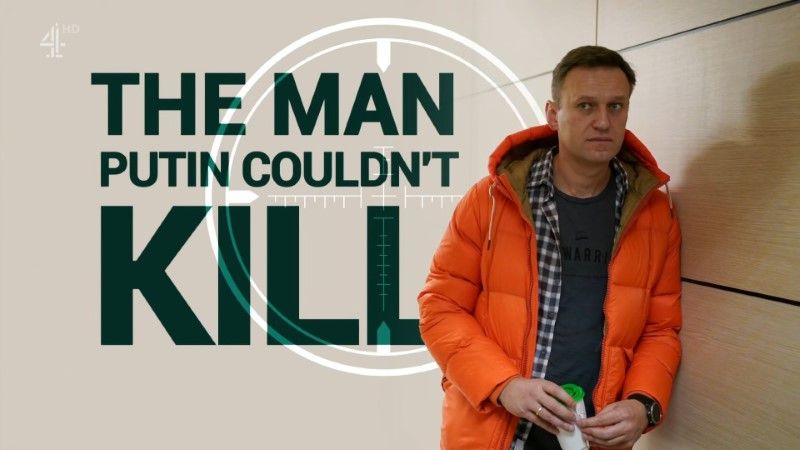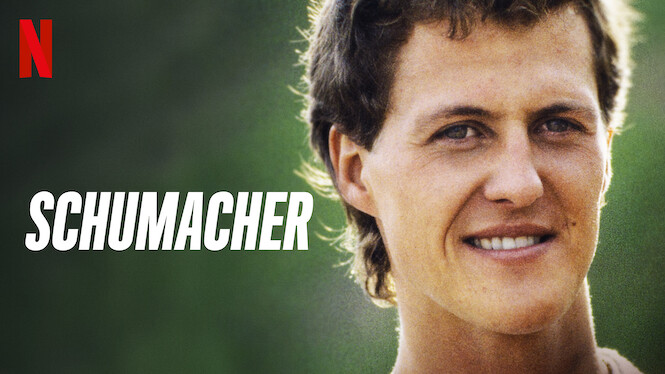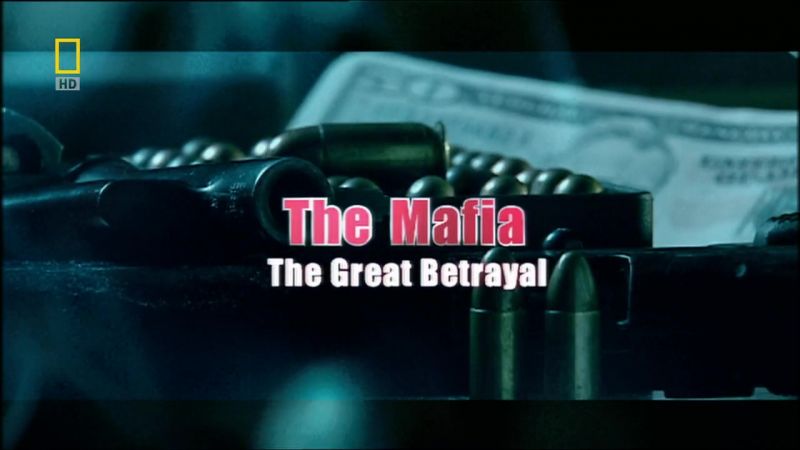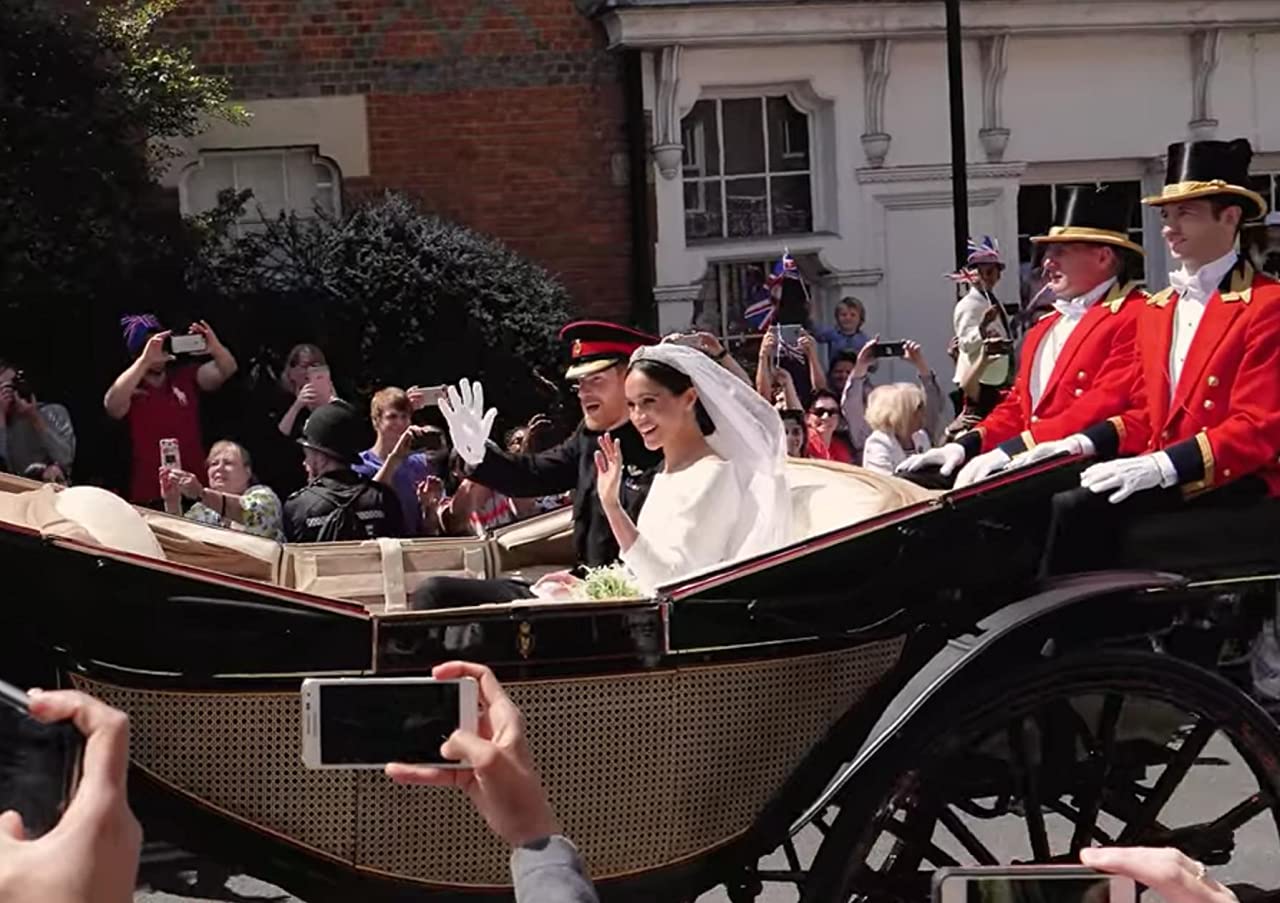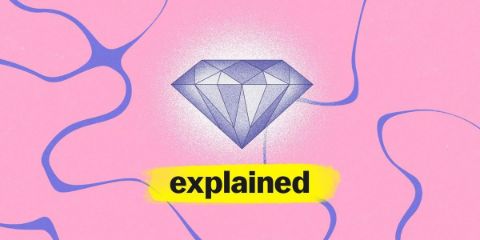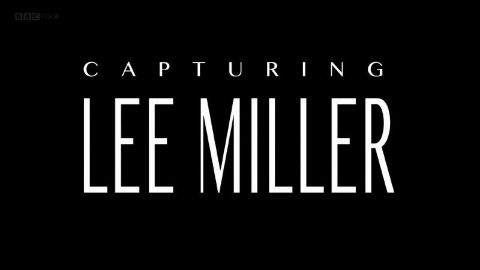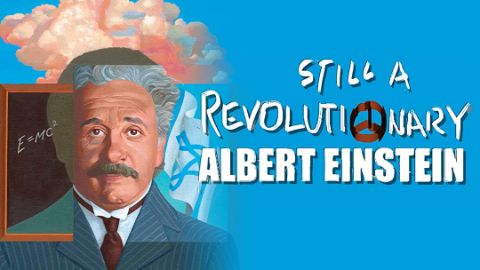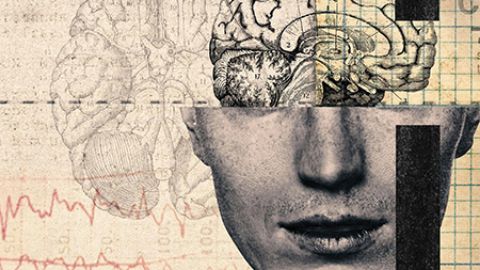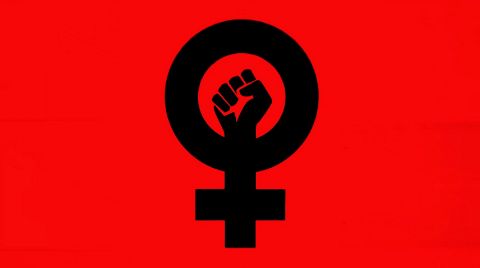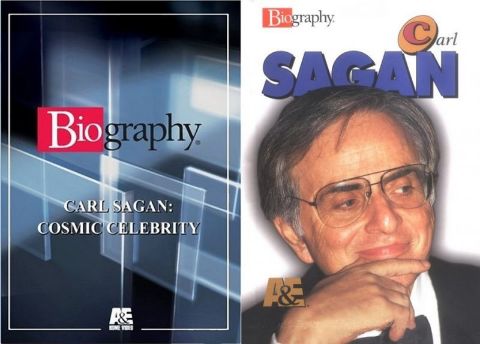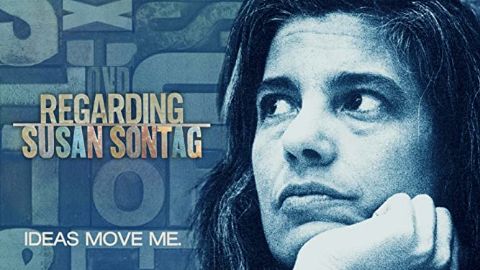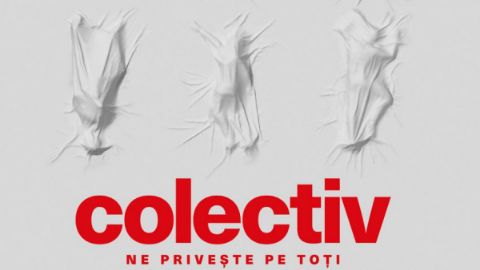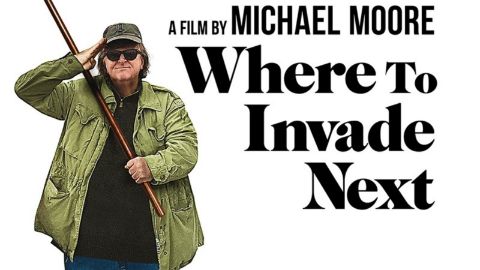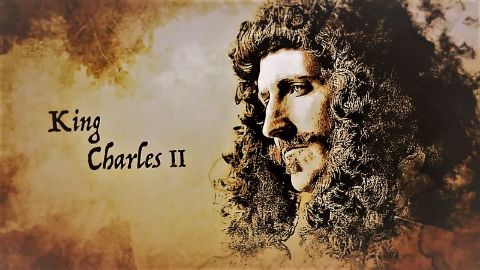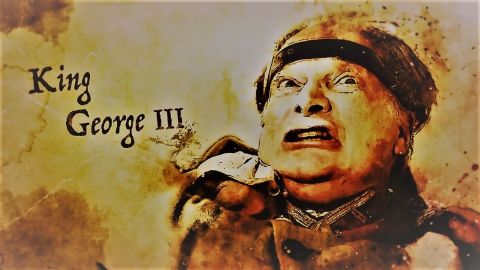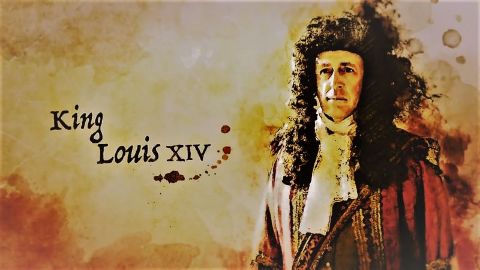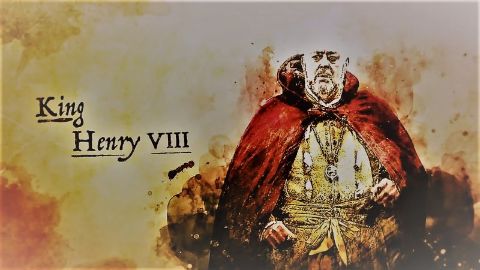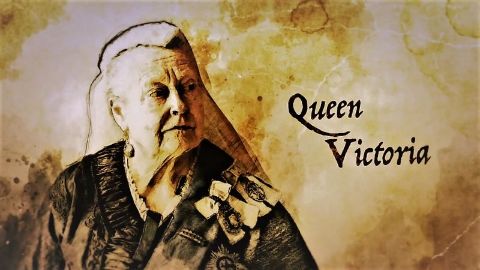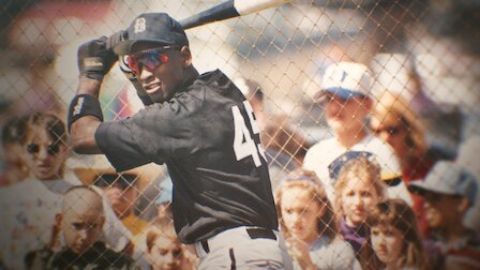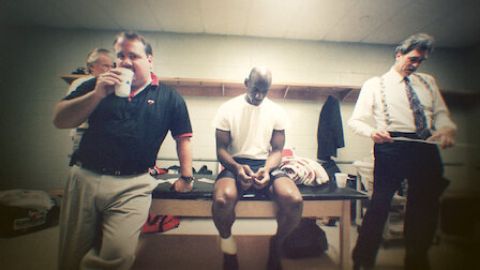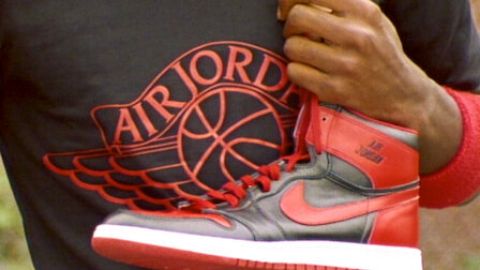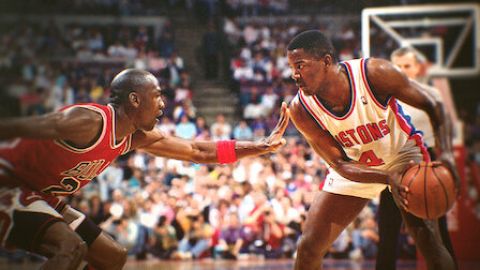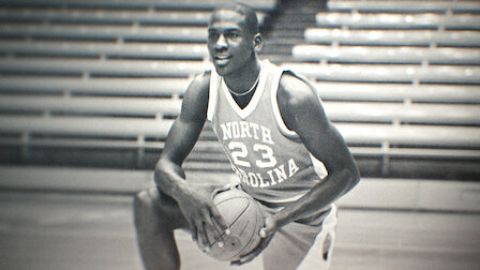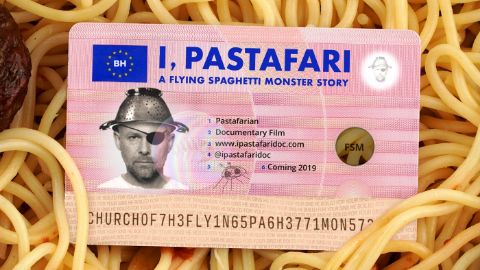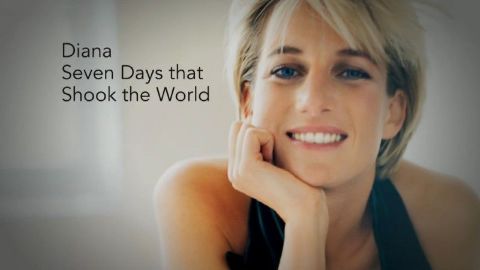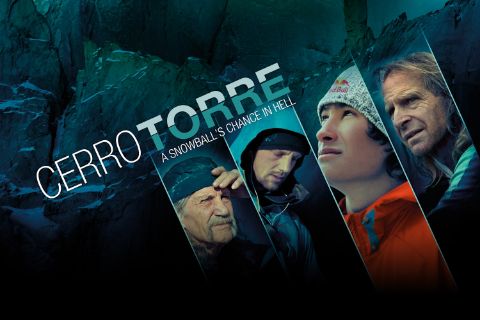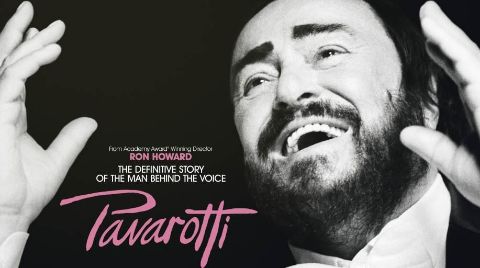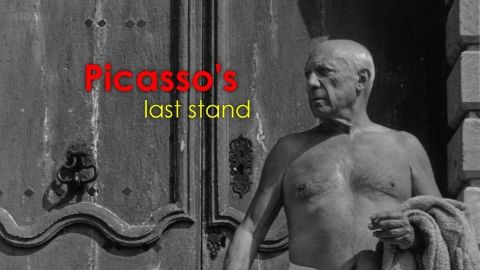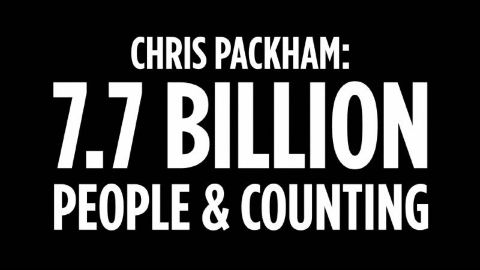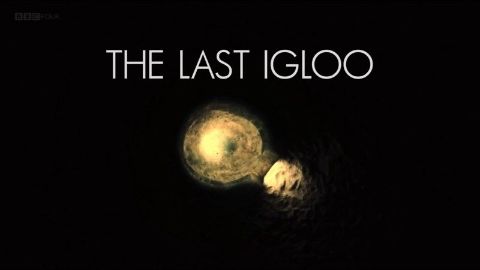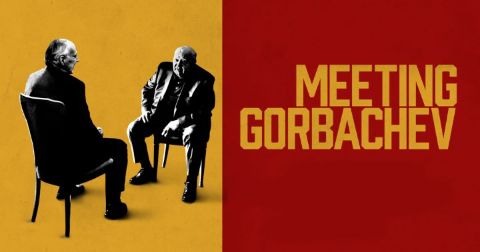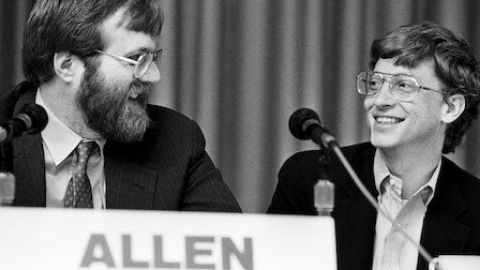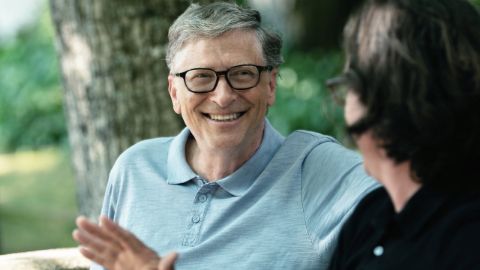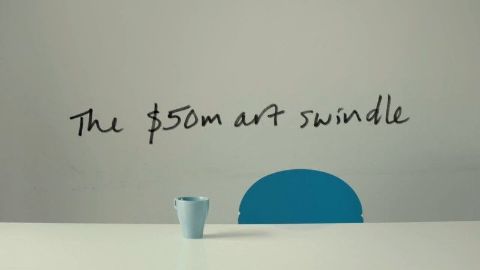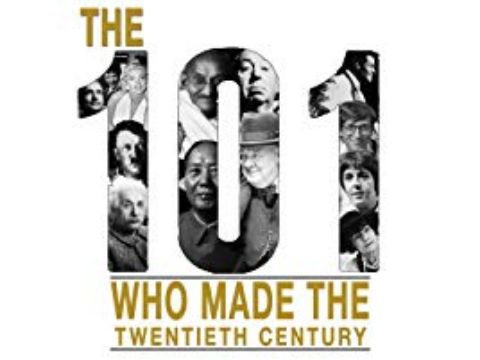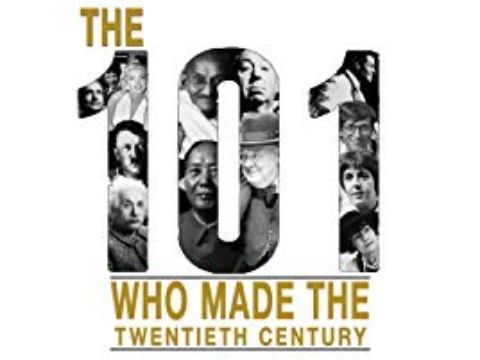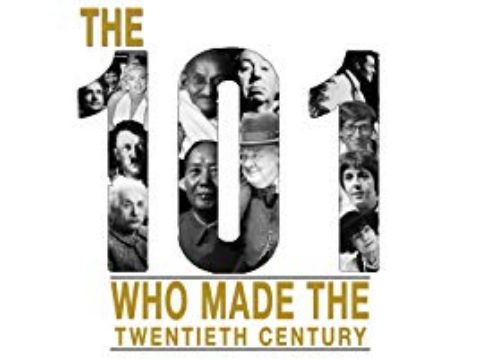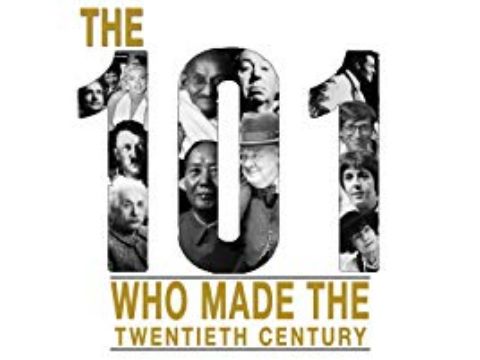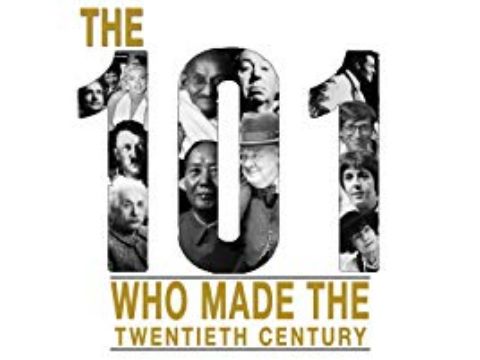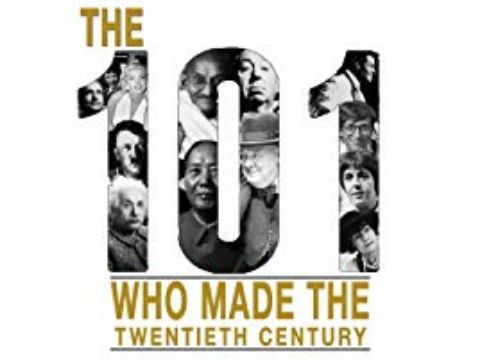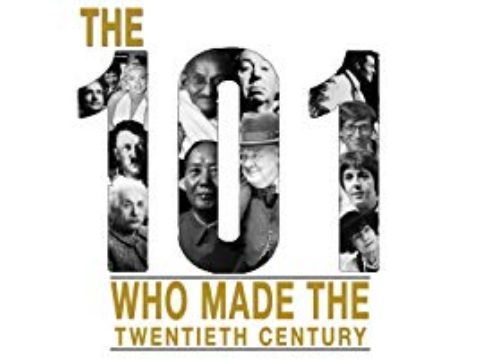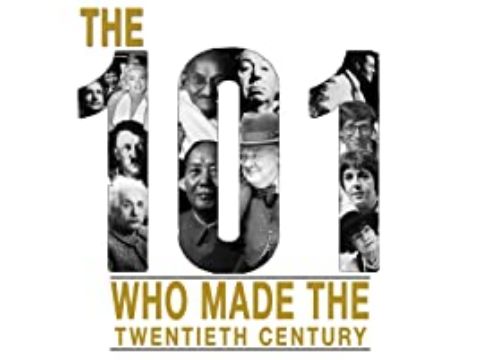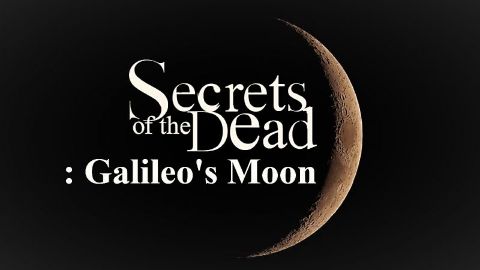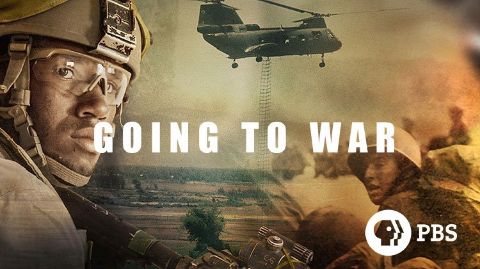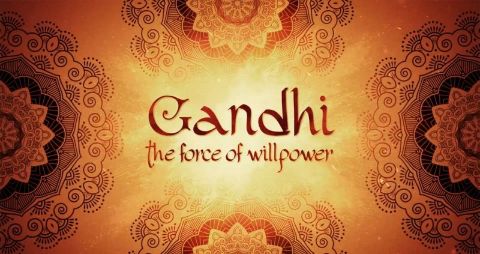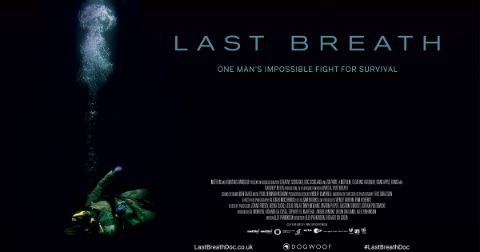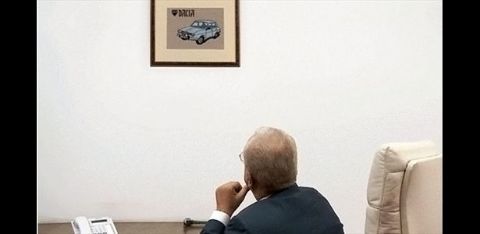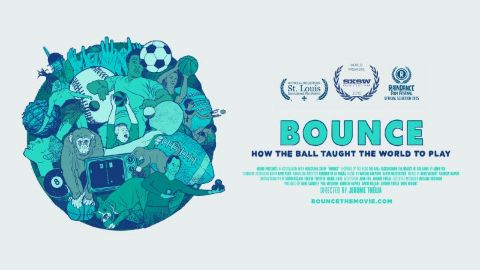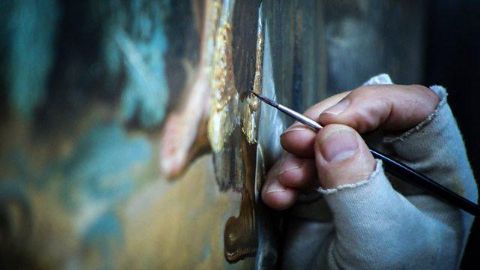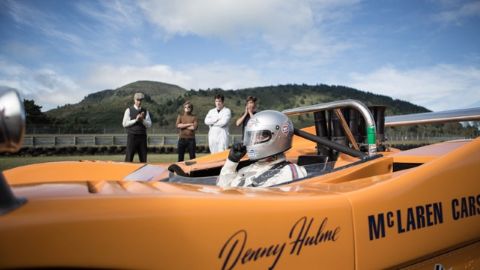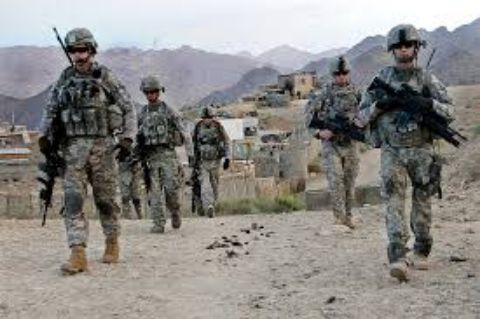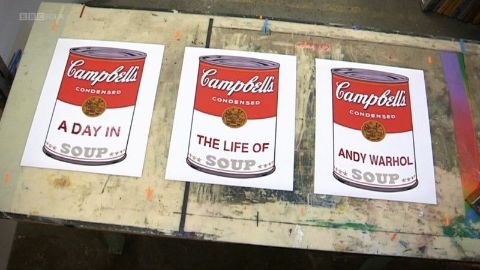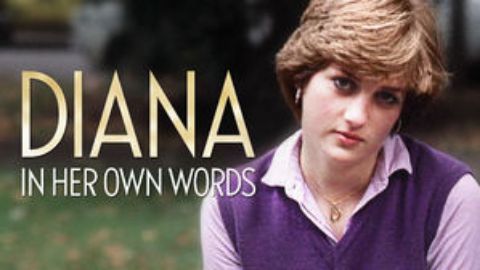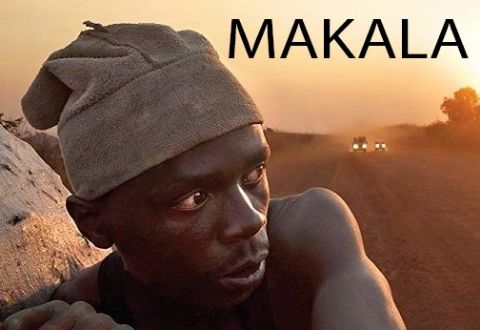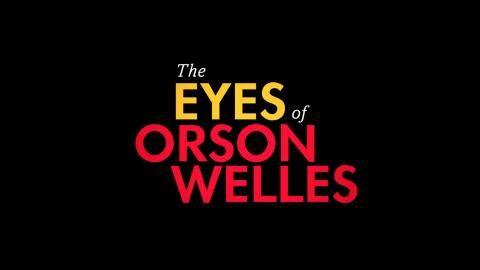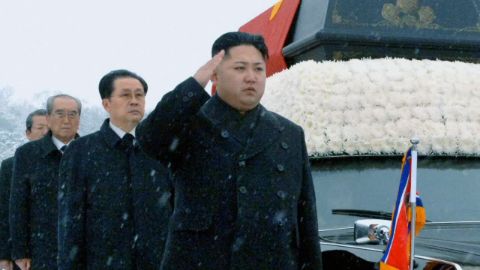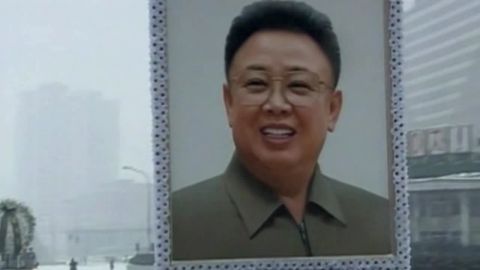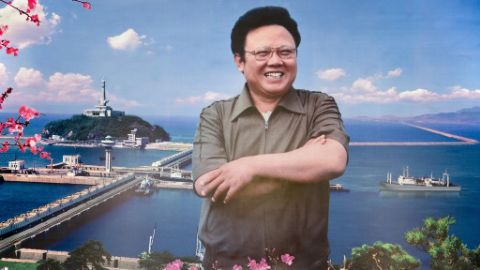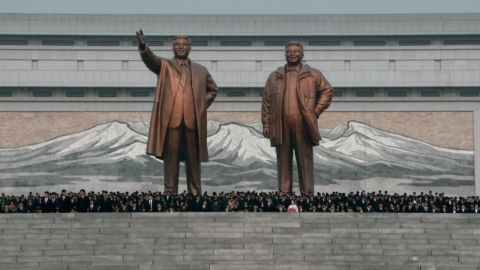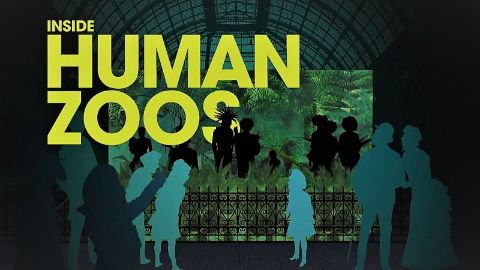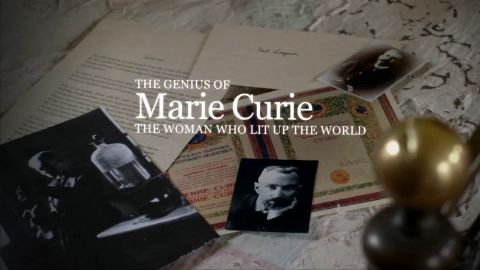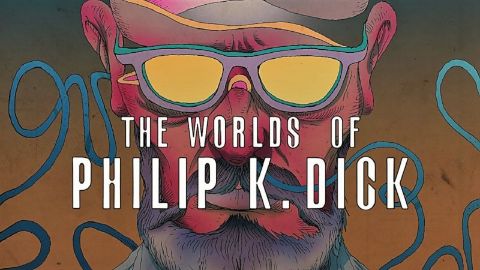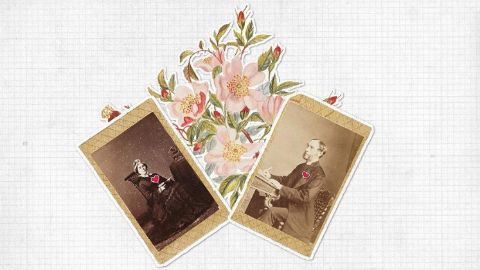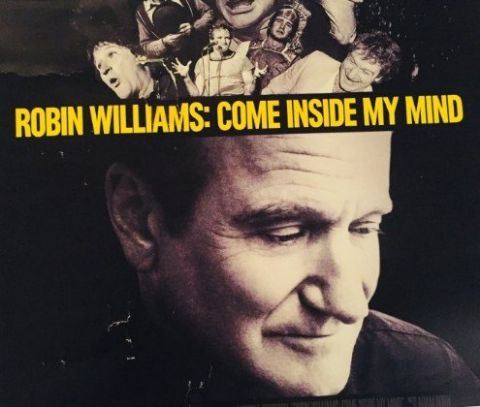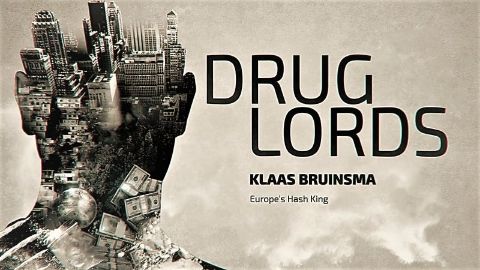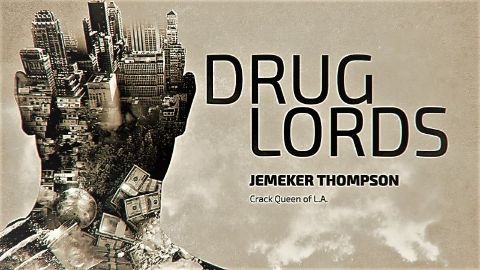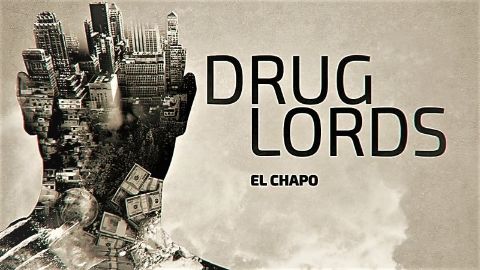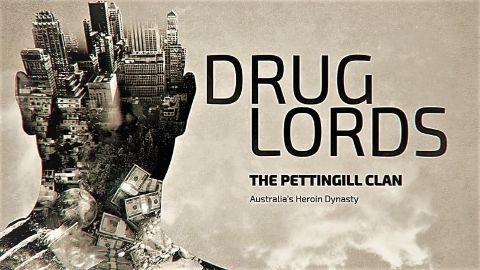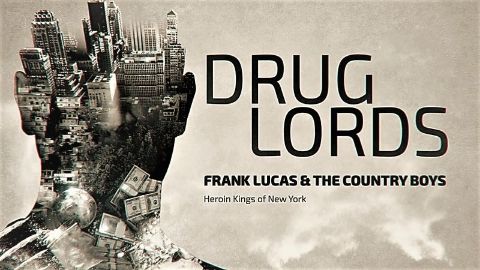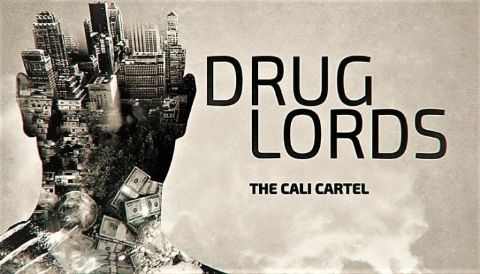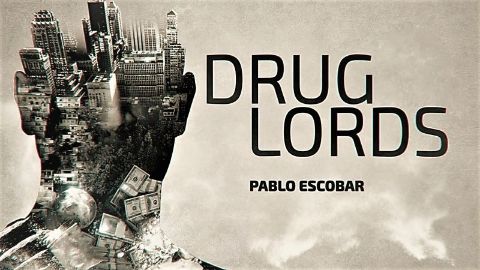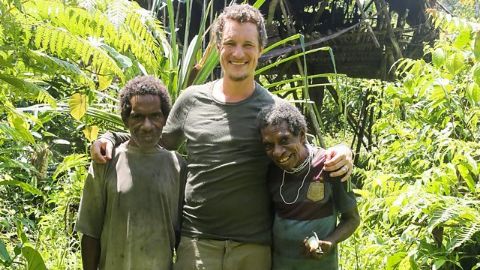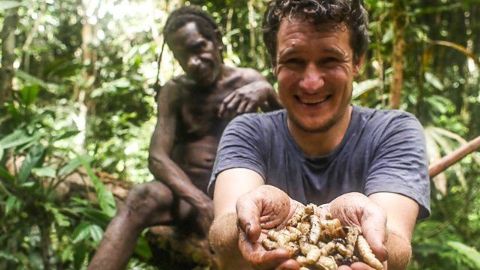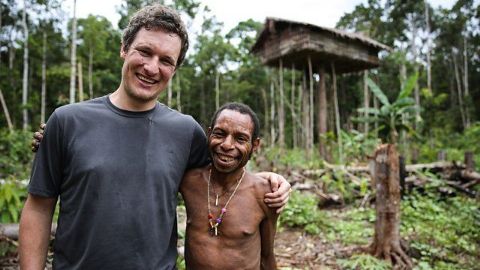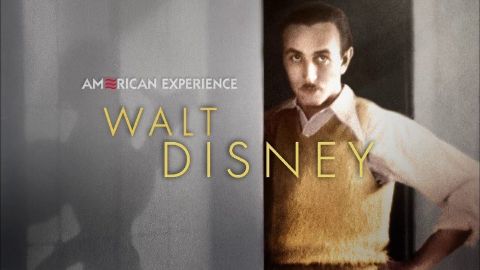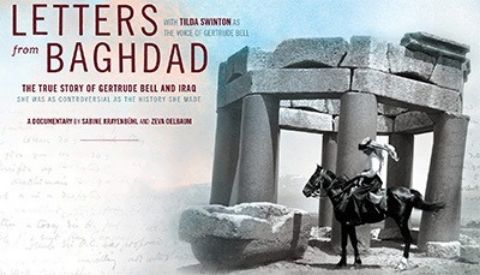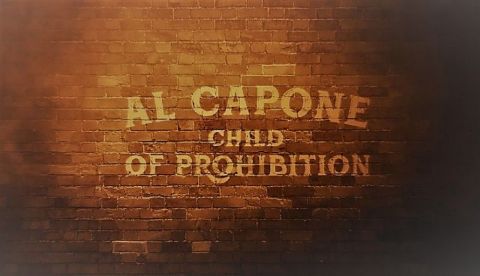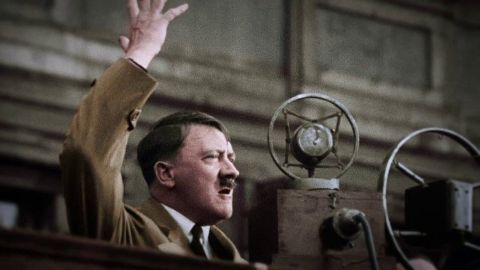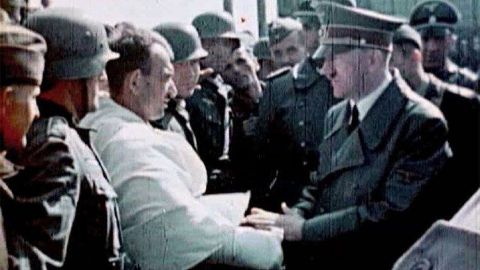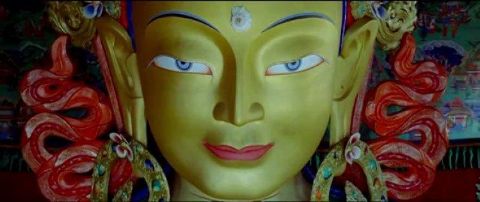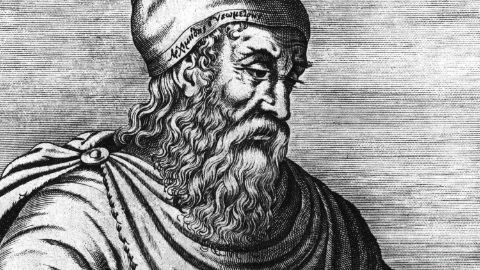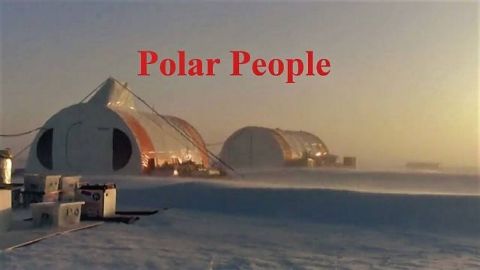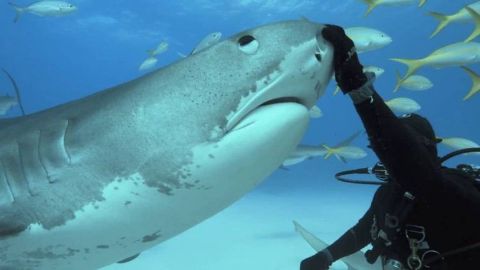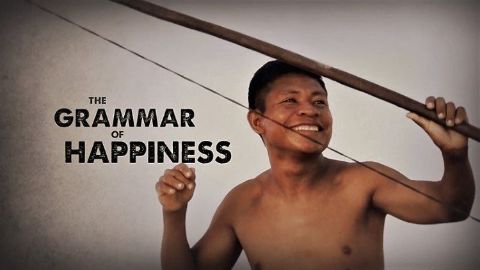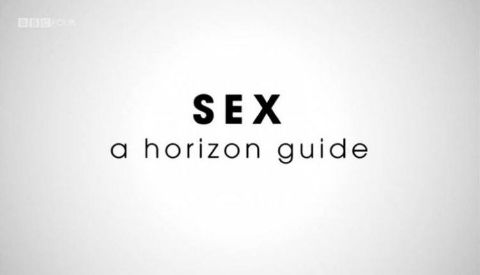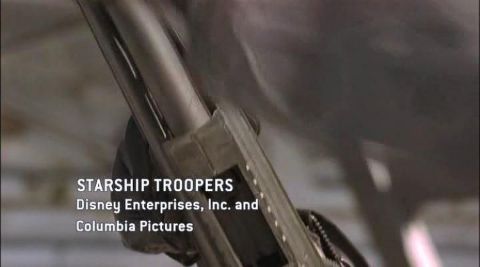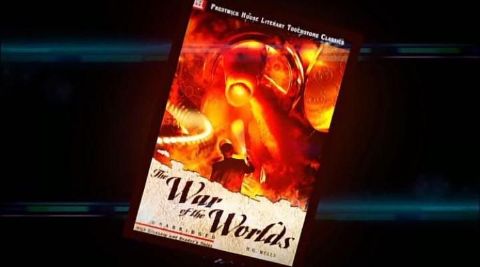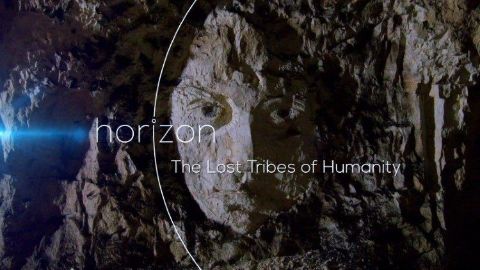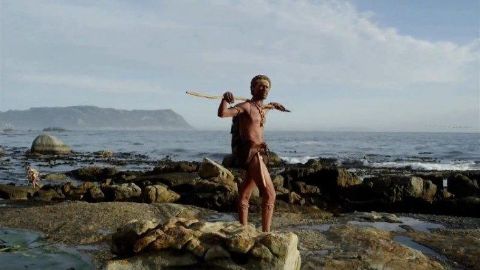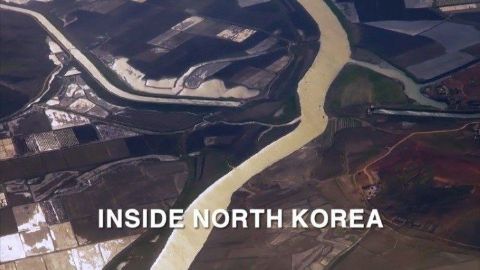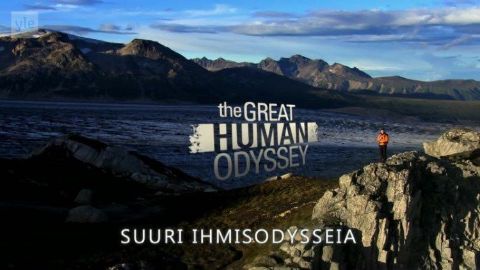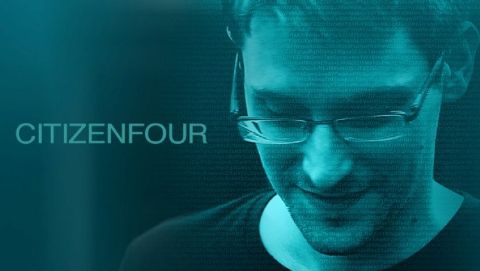PEOPLE • 264 videos
The shocking story of Aum Shinrikyo, the doomsday cult that unleashed a deadly nerve gas in Tokyo's subway system in 1995. Founded by disillusioned yoga teacher Shoko Asahara, Aum transformed into a terrorist organization while Japan's police and media turned a blind eye. Featuring rare archival footage and an interview with one of Asahara's former high-ranking disciples.
2023 • People
In 1966, drought and an exploding population confronted India with the imminent threat of a severe famine that many scientists and intellectuals feared was a harbinger of global catastrophes to come, as the world's population outstripped its ability to produce food. India turned to Norman Borlaug, an unassuming plant breeder from Iowa whose combination of scientific knowledge and raw determination had made him a legend among a small handful of fellow specialists. The Man Who Tried to Feed the World recounts the story of the man who would not only solve India's famine problem, but would go on to lead a "Green Revolution" of worldwide agriculture programs, saving countless lives. He was awarded the 1970 Nobel Peace Prize for his work but spent the rest of his life watching his methods and achievements come under increasing fire.
2020 • People
The fight to break free from a New Zealand Christian cult. Gloriavale hides the darkest of secrets - as the promise of heaven on earth descends into seclusion and subordination. Chapter 1: In 1969 an Australian preacher set up a religious community in New Zealand known as Gloriavale. Today it is home to 650 people who live a closeted existence away from the rest of society. This documentary examines the dark secrets at the heart of this Christian sect and the allegations that its followers are indoctrinated to an oppressive existence for life. Chapter 2: Focuses on what life was like for the second and third-generation members of Gloriavale, growing up in a world where every decision is made for them. New Zealand journalist Melanie Reid recounts her experience of going undercover inside the community in the 1990s, and the work she did to try to stop the abuse she discovered. Chapter 3: Charts the impact of the loss of Gloriavale's charismatic leader Hopeful Christian and his successor's struggle to keep the community running. Meanwhile, an underground network helps one member leave, while two former children of Gloriavale expose one of its most shocking secrets.
2025 • People
The second episode delves into the moral framework that religions are often cited as providing and argues against the indoctrination of children. Dawkins compares religious faith to a virus, being passed from parents to offspring and teachers to pupils. He visits a London Hasidic Jewish school, where students are largely isolated from outside ideas, and Phoenix Academy, a semi-independent city academy following the American Accelerated Christian Learning curriculum. Dawkins interviews the headteacher about the integration of biblical stories into various academic subjects and explores the differences between secular ethics and morality based on religious law. He also discusses concepts from evolutionary biology, such as reciprocal altruism and kin selection, as explanations for morality.
S1E2 • The Root of All Evil • 2006 • People
In the first episode, Dawkins examines the unproven beliefs held as facts by many religions and the extremes to which some followers take them. He argues that faith is not a way of understanding the world but is fundamentally opposed to modern science, which tests hypotheses and builds theories to describe the world. Dawkins visits the United States to interview Pastor Ted Haggard, president of the National Association of Evangelicals, and travels to Jerusalem to interview Yousef al-Khattab, an American-born Jew who settled in Israel before converting to Islam. He uses Bertrand Russell's celestial teapot analogy to respond to charges that scientific understanding does not entitle one to reject religion.
S1E1 • The Root of All Evil • 2006 • People
Documentary about the 15th-century polymath, exploring one of history's most curious and innovative minds though his paintings, drawings and writing. Chapter 1: The Disciple of Experience Takes a look at Leonardo's journey to becoming an artist and craftsman, while the bustling streets of Florence provide a rich backdrop. Viewers are also taken to Milan, where Leonardo embarked on a monumental project - painting the iconic fresco of the Last Supper. Chapter 2: Painter God Looks at how Leonardo worked as a military engineer, designed fanciful flying machines, studied light and shadow, investigated gravity and more. Plus, examining the polymath's time in Florence, Milan, Rome and France, as he poured the sum of his scientific and artistic knowledge into a portrait that would become the most famous painting on earth.
2024 • People
Comedian, actor, president, war leader - in his own words. The extraordinary life of one of the world's most recognisable leaders, and how war in Ukraine changed everything. Produced by 72 Films. Chapter 1: The Comedian and The Dictator With unique access to Volodymyr Zelensky and Olena Zelenska, this episode charts Zelensky's extraordinary journey from aspiring comedian to president of his country. Opening with the collapse of the Soviet Union - an event which had a profound effect on Zelensky and Vladimir Putin in very different ways - to the Maidan Revolution sparking a political awakening in Zelensky, this episode explores his role as the Ukrainian president in the hit TV show Servant of the People and his decision to run for president in real life. Chapter 2: President in the Real World After the high of his election victory, Zelensky is forced to face political reality. Using in-depth interviews with Zelensky, his wife Olena Zelenska and their closest advisors, this episode puts viewers inside the room as Zelensky grapples with what it means to be the leader of a country. From Zelensky's infamous phone call with Donald Trump to his only meeting with Vladimir Putin in Paris, the former comedian has a brutal initiation into the ruthless world of power politics. As Putin becomes increasingly belligerent and the drumbeat of war grows louder, Zelensky is under a huge amount of pressure. Is Ukraine prepared for war? Is Zelensky up to the job? Chapter 3: War Leader Opening in the first hours of the Russian invasion, this final episode follows explores how Zelensky used the skills he'd honed as an entertainer to galvanise people, as well as taking viewers inside Ukraine's peace negotiations with Russia. And the Zelenskys reveal what happened in the first hours of the Russian invasion, open up about the realities of living through war and the difficulty of making life and death decisions.
2024 • People
Documentary about Elizabethan peer Edward de Vere, 17th Earl of Oxford, who some believe is the person who wrote the works attributed to William Shakespeare.
2018 • People
The third episode opens on a world of drug trafficking that has been fragmented by the efforts of the police. Dealers have now changed; invisibility is their chief weapon. The trade has shifted to areas beyond law-and-order, like war zones in Afghanistan or areas with guerilla activity like Colombia. Designer drugs, which are easy to manufacture and conceal, play a key role in the transformation of the traffic. In Mexico, the cartels have dragged the whole country into a merciless spiral of violence – wherever one looks, the toll of the war on drugs makes for grim reading. Synthetic drugs, which are easy to manufacture and conceal, herald the fourth generation to come: traffickers in white coats. This poses the question: Is it time to legalize drugs, radically changing the current situation and perhaps the way we perceive them?
S1E3 • The Story of Drug Trafficking • 2020 • People
The first world power goes to war against drugs: the United States strikes hard. But the drug trade never dies. It moves, transforms, adapts. As the war on drugs progresses around the world, a new generation of drug lords emerged at the end of the 1970s, more powerful than ever. These criminals were not only in it for the money; they also wanted power. Pablo Escobar was the most notorious, but there was also Toto Riina in Sicily, Khun Sa in the Golden Triangle, and Felix Gallardo in Mexico, all of whom changed the destinies of their respective territories by taking drug trafficking to a global scale. They defied states and threatened the powers-that-be. It took almost 20 years for states to get organized and come up with strategies to bring down the drug barons.
S1E2 • The Story of Drug Trafficking • 2020 • People
Drug trafficking was not invented by a mafia but by the European colonial powers in the 19th century. Opium use spread throughout Asia, promoted by colonial powers. Meanwhile, the western pharmaceutical industry was developing some miraculous products, such as morphine, cocaine, and heroin. Addiction became a global scourge, and prohibition gradually became the norm. But outlawing these substances at the beginning of the 20th century gave rise to the first drug-trafficking networks, which often sought to operate under state protection, in Mexico, France and China… These networks underwent unprecedented growth during the Cold War, when secret services used the drug trade as a geopolitical instrument. The United States paid the price for this: In 1970, one third of their troops in Vietnam were addicted to heroin. A year later, in an historic speech, President Richard Nixon launched the war on drugs.
S1E1 • The Story of Drug Trafficking • 2020 • People
The life and work of M.C. Escher is presented primarily through his own words in the form of his writings being read against a backdrop of images associated to him, including archival footage of himself and images of his drawings. Many further details are provided by surviving family members. Escher himself considered what he did being caught between the worlds of art and mathematics - he not very good at either - his drawings always having an element of geometry. He made a conscious decision to work in monochromatic black and white realizing that he would be missing being able to convey ideas that are inherent with color. The evolution to two of his later periods is discussed, namely his series of drawings of the human eye, and what would become his ultimate fascination, that of the concept of infinity, whether it be real, as in the circle or the study of a man viewing a picture of himself viewing a picture of himself and so on, or perceived through illusions, such as his never-ending staircase. The documentary is buttressed by commentary from fan, musician Graham Nash who believes his brilliance has not yet been fully appreciated. Further Information
2021 • People
The search for Pablo Escobar as told by US Drug Enforcement Administration agents, with never-before-seen footage of Escobar's life and capture.
2018 • People
A riveting story that captures the immense draw that Antarctica has had on dreamers, explorers and travelers alike over the last 200 years. Explorer Geoff Wilson attempts a challenge that may see him travel further than any explorer before.
2020 • People
In 1960, head of the Chicago mob, Tony Accardo sits at the top of the country's most powerful crime syndicate, The Outfit. But he's facing his biggest challenge yet, after his second in command, acting boss Sam Giancana becomes a target of the federal government, drawing more unwanted attention to the organization. A feud between the two mob bosses reaches a breaking point when Accardo cleverly pulls all the strings to stabilize the organization. But then the assassination of President John F. Kennedy shook the nation. Tony Accardo, the only gangster left from Capone's time, decides to sell the Las Vegas casinos and retire. But he remains the "consigliere," the Mafia's adviser in Chicago, while keeping a low-profile as a beer salesman for Fox Head Brewing Company. In 1992, after a 70-year career in the mafia, Accardo dies peacefully surrounded by family, having never spent a day in prison.
S1E8 • The Making of the Mob: Chicago • 2016 • People
On January 1947, Al Capone, the most notorious gangster in America is dead at the age of 48. After serving ten years prison sentence Paul Ricca takes his place alongside Tony Accardo as co-head of The Outfit, which is making more money than before thanks to the numbers racket. In order to hide their profits, the answer is a growing city in the middle of the Mojave Desert where gambling is legal—Las Vegas, Nevada. But for the mafia from Chicago it is difficult to get into the gambling paradise of Las Vegas, because the New York mafia is already there. But it turns out to be a well-organized partnership. The leadership around Tony Accardo expands rapidly and finances the construction of new casinos in the city. The money for this is provided, among others, by the boss of one of the country's largest unions, Jimmy Hoffa. But the connection flies.
S1E7 • The Making of the Mob: Chicago • 2016 • People
While Al Capone is locked up in prison, the empire he left behind is dealing with a new problem—Prohibition has recently been repealed and one of The Outfit's most important sources of income dries up. With Capone cut off from them, his most-trusted men, Frank Nitti, Tony Accardo, and Paul Ricca must keep his organization afloat, and Nitti takes the reins. With thousands of Americans flocking to the theaters, the film industry is raking in millions of dollars a month. So Nitti wants to hold the movie business hostage. In the 1930s, the Chicago mafia tried to get into the Hollywood film business in order to open up new sources of money. Their local man is Willie Bioff. In 1939, Al Capone was released early from prison. But the once powerful gang boss is seriously ill. Responsibility now lies with Tony Accardo and Paul Ricca. They expand the Chicago mafia to Las Vegas
S1E6 • The Making of the Mob: Chicago • 2016 • People
When Eliot Ness aims his sights on Al Capone, he orders a hit on the young Prohibition Bureau agent. However, Ness narrowly escapes and it becomes personal; he will do everything he can to take Capone and his kingpin empire down. Officer Ness is hot on Al Capone's heels and his team of "Untouchables" execute a series of high-profile raids on Capone's breweries. But the tax investigation also wants to hunt down the gangster. Tax investigator Frank Wilson finally finds evidence of Al Capone's illegal dealings. Capone has to go to jail. When he is transferred to a maximum security prison, he fears for his power. With all his power stripped away, Capone looks to his top lieutenants to take the reins of his criminal empire he built. And if they can't handle the job, he will lose everything.
S1E5 • The Making of the Mob: Chicago • 2016 • People
In 1927, at the height of his power, Al Capone, now the head of the Chicago Mafia, decides to get out of Cicero and moves back to where it all started; Chicago. Capone takes over the top floor of the Lexington Hotel and invites the press up to his workspace. Meanwhile, Irish gangster Bugs Moran targets those closest to Capone, and puts a hit on Jack McGurn who killed Hymie Weiss. Capone wants to take out Moran's gang all at once, devising a meticulous plan to quickly wipe out the competing Irish in Chicago. The "Valentine's Day Massacre" goes down in American history and causes nationwide consternation. Capone is increasingly becoming the focus of state power.
S1E4 • The Making of the Mob: Chicago • 2016 • People
Johnny Torrio and Al Capone have become two of the biggest kingpins in Chicago, and they're about to become even bigger. But then there is a confrontation with the Irish. Torrio is jailed after O'Banion betrays him. But revenge is not long in coming. Peace ends in Chicago when Torrio and Capone seek revenge against the Irish gangs. Dean O'Banion is murdered and gang warfare escalates in Chicago. Bucking pressure, Johnny Torrio and Al Capone have moved their operations to the neighboring city of Cicero. Al Capone takes over the business - and his rise to the "King of Chicago" begins. The "Beer Wars" put Capone on top.
S1E3 • The Making of the Mob: Chicago • 2016 • People
In less than two years, Al Capone has risen from a humble bookkeeper to second-in-command of Johnny Torrio's criminal empire in Chicago. The empire is worth the modern-day equivalent of S35 million. Capone purchases a home for his family and moves them from New York to Chicago. Torrio and Capone expand their empire from Chicago's South Side to the North Side, which is controlled by Chicago's second largest gang, the Irish. Violence erupts as ruthless Irish gang leader Dean O'Banion protects his territory and bootlegging business from Torrio and Capone.
S1E2 • The Making of the Mob: Chicago • 2016 • People
The story of America's most notorious gangster, Al Capone, starts on the streets of Brooklyn. In 1913, at the age of 14, Capone starts running errands for local gangsters - just one of many immigrants struggling to survive. One day, young Al Capone gets caught in a police raid. He quickly grabs what money he can, evades police, and runs to the headquarters of mob boss Johnny Torrio. Torrio rewards Capone for his quick-thinking. When Torrio recognizes Capone's intelligence and drive, he takes him under his wing and Capone moves to Chicago in the winter of 1919 to work for Torrio.
S1E1 • The Making of the Mob: Chicago • 2016 • People
A look at the personal and private life of the late Apple CEO, Steve Jobs.
2015 • People
He came. He saw. He conquered. The tale of an ambitious power-grab that turned to tyranny. How Julius Caesar dismantled five centuries of ancient Roman democracy in just 16 years.
2023 • People
In the third episode "Revenge," President Kennedy's body arrives back in Washington, and a grieving Jackie Kennedy leads the funeral march to honor him. In Dallas, Lee Harvey Oswald is charged with JFK's murder. But the world is shocked again when Oswald himself is shot dead while still in police custody by nightclub owner Jack Ruby. With Oswald dead, there is no reckoning and America will never be the same.
S1E3 • JFK: One Day in America • 2023 • People
In the second episode "Manhunt," the race is on to track down JFK's killer. But before he is arrested, the assassin kills again. Meanwhile, Jackie Kennedy boards Air Force One to return JFK's body to Washington. Still wearing her bloodstained dress, she witnesses LBJ being sworn in as president. As the net closes in around suspected killer Lee Harvey Oswald, his friends and family face interrogation.
S1E2 • JFK: One Day in America • 2023 • People
In the first episode "Assassination," former President John F. Kennedy and his wife Jackie traveled to Texas with an eye on the 1964 elections and a team of secret service agents. During a motorcade through downtown Dallas, JFK was brutally shot in broad daylight and, later, tragically pronounced dead at Parkland Hospital with his grieving wife in the next room. America was changed forever.
S1E1 • JFK: One Day in America • 2023 • People
Explores the last 24 hours in President Kennedy's life through original footage and oral history, from his arrival into Dallas to his body being taken by Air Force One to Washington DC. The programme also examines the chaos and grief that swept a nation, and the subsequent arrest and murder of apparent sole gunman Lee Harvey Oswald.
2023 • People
His art changed the way we see the world - now change the way you see the artist. An unflinching look at Picasso's legacy, and the horror and brilliance of what he left behind. Chapter 1: A look at Picasso through his years as an emerging artist in Paris as his renown quickly grows. He meets his first love, Fernande, and starts the pattern of his lifetime, as he soon falls in love with another woman, ballerina Olga Khokhlova. Chapter 2: Now established as one of the greats of the art world, Picasso holds an extraordinary one-man show in Paris. As another relationship crumbles, he starts a double life with his 17-year-old mistress, and war inspires some of his greatest work, including the masterpiece Guernica. Chapter 3: Age doesn't dim Picasso's artistic creativity as he explores ceramics and film. After his relationship with Dora Maar sours, he falls in love with a much younger artist, Francoise Gilot, only to find she has a strong will of her own.
2023 • People
Following the Euromaidan protests and fleeing of pro-Russian Ukrainian President Viktor Yanukovych, Valdimir Putin invades the strategic region Crimea using separatist forces, and annexes it to the Russian Federation. The western world leaders try to convince Putin to a ceasefire in Crimea.
S1E1 • Putin vs the West • 2023 • People
Interviewees recall a 1992 campaign in the Philippines that went so awry, it led to riots and deaths. In 1999, John's court battle reaches a conclusion.
S1E4 • Pepsi, Where's My Jet? • 2022 • People
The Pentagon has to issue a statement. Scammers start to circle. To win this case, John needs to go to trial in the court of public opinion.
S1E3 • Pepsi, Where's My Jet? • 2022 • People
John and Todd perfect their scheme. They send in their Pepsi Points and their check, and wait. The Pepsi executives scramble, and the lawyers descend.
S1E2 • Pepsi, Where's My Jet? • 2022 • People
Seven million Pepsi Points to win a fighter jet? It should have been impossible. But 20-year-old John Leonard sees the ad in 1995 - and finds a loophole.
S1E1 • Pepsi, Where's My Jet? • People
Filmed over two years and across three continents, this documentary tells the story of the campaign by Julian Assange's wife and father to prevent his extradition to America, where he faces a maximum 175-year prison sentence. Weaving historic archive and intimate behind-the-scenes footage, the film tracks their journey as they embark on a worldwide odyssey to rally a global network of supporters for one of the world's most famous prisoners. First broadcast by ITV in 2023. First released in Australia in 2021.
2021 • People
Benito Mussolini seized power in Italy in October 1922, after his March on Rome. He would hold it in his grasp until his death in 1945, establishing a dictatorship that lasted more than two decades. Long considered a buffoon and a second-rate dictator, Il Duce invented fascism that was imitated by Adolf Hitler, who viewed the Italian as his political master. Mussolini wanted to transform his country into a warrior nation and promised Italians a return to the grandeur of the Roman Empire. He governed by violence and trickery and was one of the first populist leaders of modern times, leading his country into the catastrophe of the Second World War. But who was Benito Mussolini, this former teacher who came from the extreme left to become a newspaper editor and creator of the Italian Fascist Party? Why did he ally himself with Adolf Hitler? Were the Italian people really behind him? With rare archives, some of which have been colorized, and interviews with the last-surviving witnesses of the era, along with perspectives from historian Marie-Anne Matard-Bonucci, this portrait takes a look back at one of the most notorious dictators of the 20th century.
2022 • People
Amol Rajan joins Sir Richard Branson on one of his cruise ships in Miami to discuss his life, loves, passions and challenges. In a sometimes uncomfortable interview with rarely seen archive footage, Rajan delves into Branson's background to discover how he went from 60s hippy to global business icon, reshaping multiple industries and ending up in space.
2023 • People
Marco Polo: World's Greatest Overland Explorer? Or World's Biggest Liar? Perhaps no land journey in human history is more famous than Marco Polo's legendary 24 year trek across Asia. But was it all just a big lie? As described in his 1299 book, the peripatetic Venetian merchant encountered such wonders as the "singing sand dunes" of Dunhuang, China, "mountains of salt" in present-day Afghanistan, and the glories of the Mongol court of Kublai Khan. Generations of Europeans were spellbound by Polo's account, yet in recent years some scholars have questioned its authenticity. National Geographic Photographer Mike Yamashita sets out to visually document one of the greatest overland journeys ever made: the 24-year odyssey of Marco Polo. 700 years ago a young Venetian set out on what was to become one of the most influential journeys ever made. His adventures took him well beyond the boundaries of the known world of Persia to a land that was almost completely unexplored - the mysterious Middle Kingdom. But ever since he returned there were those who doubted Marco Polo. Did he really see what he described in his legendary book, 'Description of the World' or did he merely describe what others told him. In this film, Mike Yamashita follows Marco's book from the lofty heights of the Pamir Mountains to the fabled city of Xanadu in Mongolia. In so doing he attempts to unravel some of the age old mystery: Did Marco Polo really go to China? In the course of this incredible journey Mike stumbles onto a nomadic Kazak wedding in Aksai and investigates the controversy of the Great Wall - why did Polo never mention this in his famous travelogue "The Description of the World"? And why did he never mention tea or chopsticks? Yamashita talks to noted Chinese historian Professor Liu Yingsheng about these and many other Polo conundrums. In Yunnan province, he visits the bound feet women, and travels to inner Mongolia to film the famous herds of the Mongolian horsemen. As Yamashita reaches Xanadu he ponders on how Polo became a trusted confidant to the Khan and spent 17 years in his service. What sights he must have seen. But did he? The mystery slowly but surely reveals itself.
2022 • People
Bill Gates talks to Amol Rajan about wealth, conspiracy theories and recent controversies. They visit a remote region outside Nairobi in Kenya, where Gates supports local farms and hospitals through his charitable foundation, for a rare, in-depth interview with the tech entrepreneur. Gates has spent much of his life being the richest man on earth. He excelled at school, founded Microsoft and helped to realise his vision of having a computer on every desk in every home. His public image has changed over the years, from geek to business titan and philanthropist. In recent years, he has become the subject of endless conspiracy theories and has attracted unfavourable headlines on the subject of his divorce and his association with Jeffrey Epstein. In this challenging and personal interview, Rajan tackles these issues head-on, talking to Gates about his early success, his wealth, how he uses it now, and the controversies that have arisen over the years. In this unusually candid interview, Gates is often revealing in his responses.
2023 • People
More than five centuries ago, Michelangelo Buonarroti was the darling of the Catholic Church. Throughout his masterful career, the Papacy commissioned him to create many of its most important pieces, including the frescoes of the Sistine Chapel. He spent his life glorifying the Church, etching Catholic ideals into masterpieces that defined religion for the masses. Yet when he died, his body was secretly shepherded off to Florence, and the Church was denied the opportunity to honor him with a grand funeral in Rome. Historians have long wondered about the mysterious circumstances surrounding his death, but now, five hundred years after his death, new finds are revealing a darker side to the master artisan. While restoring Michelangelo's sculptures in the tomb of Julius II, art historian Antonio Forcellino noticed some strange inconsistencies in the famous statue: "The Moses." Forcellino believes he has pieced together evidence of a deep rift between the Church and the esteemed artist. The cause: Michelangelo's belief in Protestant ideals. The imperfections in the statue started him on a careful scientific and historical investigation that exposed remarkable evidence of Michelangelo's involvement with a clandestine fellowship trying to put an end to the decadence and corruption of the Clergy and reform the Church from within. The group's radical ideas and accusations of corruption were considered heretical and punishable by death. Michelangelo's involvement put him at dangerous odds with powerful officials who held his livelihood - and life - in their hands. "Michelangelo Revealed" takes us back over 500 years to the dangerous political climate of papal Rome, vividly portrayed through dramatic reconstruction. We are thrown into the heart of a fierce battle for religious control between the cardinals, and the resulting injustices of the Inquisition, shedding new light on the angst surrounding Michelangelo's "Last Judgement" in the Sistine Chapel and his previously shrouded connections to a subversive religious group and persecuted religious beliefs. "Secrets of the Dead: Michelangelo Revealed" deconstructs the puzzling discrepancies between the sculptures Michelangelo created and the way he described them, revealing an intricate effort to carve his own beliefs into stone, while protecting himself from the wrath of a powerful Cardinal who viewed him as a heretic. MICHELANGELO REVEALED paints a stunning new picture of brave religious expression, personal vendettas, careful cover-ups and a most gifted artist desperately trying to reconcile his loyalty to the church with his own personal belief about the road to salvation.
Secrets of the Dead • 2008 • People
Ahead of what is expected to be his World Cup farewell, this wide-reaching documentary seeks to provide a detailed understanding of the real Lionel Messi. He is one of the greatest players of all time, but in contrast with his awe-inspiring ability on the pitch, he is an enigmatic figure off it. With incredible footage of the Argentinean superstar as a child prodigy, this is Messi as you have never seen him before. School friends describe how a painfully shy boy with a growth hormone deficiency would draw crowds to see him play from the age of nine, while former teammates Cesc Fabregas and Xavi tell behind-the-scenes tales of what Messi is like in the dressing room. Ex-Argentina team-mates Pablo Zabaleta, Javier Mascherano and Hernan Crespo explain the more complex sides of Messi’s story. How is it that Argentina’s all-time top scorer has had to deal with spells of sustained criticism at home while the controversial figure of Diego Maradona is universally loved across the South American nation?
2022 • People
In August 2020, a plane travelling from Siberia to Moscow made an emergency landing. One of its passengers, Russian opposition leader Alexei Navalny, was deathly ill. Taken to a local Siberian hospital and eventually evacuated to Berlin, doctors there confirmed that he had been poisoned with Novichok, a nerve agent implicated in attacks on other opponents of the Russian government. President Vladimir Putin immediately cast doubt on the findings and denied any involvement. While recovering, Navalny and his team unravel the plot against him, finding evidence of the Kremlin’s involvement and prepare to go public with their findings.
2022 • People
Explores the revolutionary life of one of the 18th century's most consequential and compelling personalities, whose work and words unlocked the mystery of electricity and helped create the United States. Franklin's 84 years (1706-1790) spanned an epoch of momentous change in science, technology, literature, politics, and government — fields he himself advanced through a lifelong commitment to societal and self-improvement. Chapter 1: Join or Die (1706-1774) Leaving behind his Boston childhood, Benjamin Franklin reinvents himself in Philadelphia where he builds a printing empire and a new life with his wife, Deborah. Turning to science, Franklin's lightning rod and experiments in electricity earn him worldwide fame. After entering politics, he spends years in London trying to keep Britain and America together as his own family starts to come apart. Chapter 2: An American (1775-1790) Benjamin Franklin leaves London and returns to wartime Philadelphia where he joins Congress and helps Thomas Jefferson craft the Declaration of Independence. In Paris, he wins French support for the American Revolution then negotiates a peace treaty with Britain. He spends his last years in the new United States, working on the Constitution and unsuccessfully promoting the abolition of slavery.
2022 • People
Mikhail Gorbachev helped to shape the 20th century, being the architect of glasnost and perestroika. His actions brought down the Berlin Wall, giving countries of the former Soviet Union a chance to break away and be free. But while to many in the west he remains a hero, in his own country Gorbachev is condemned for destroying the Soviet empire. This film is an intimate portrait of the former Russian leader in his final years, before his death in August 2022, living alone in an empty house outside Moscow and carrying the burdens of his past.
2022 • People
After 9/11, Osama goes into hiding. But US Navy Seals are on his tail. In 1997, bin Laden's al-Qaida expanded its operations in Afghanistan. With the United States as his target, he occasionally gives interviews to US networks from his base in the mountains to take his threats straight into the enemy's living room. In 1998, bin Laden followed with his infamous fatwa, in which he declared the killing of civilians and soldiers of the United States and its allies everywhere as the duty of every Muslim. Just months later, the US embassies in Tanzania and Kenya are bombed, followed by a missile attack on Bin Laden's training camp and placing him on the FBI's 10 Most Wanted List. That doesn't deter him, however: in 2000, the secret services already suspected that "something was up" when al-Qaeda activists attacked a US warship and killed 17 people. In 2001, the first plans for an attack on the twin towers were already five years old. One of bin Laden's closest associates, Abu Hafs, disagrees with the strategy and leaves al-Qaeda before the operation goes ahead. On September 11, when the only TV station authorized by the Taliban broadcast the attack, a revolt broke out among the mujahideen. When George W. Bush declared the war on terror, bin Laden withdrew to the Tora Bora mountains. He never stays in the same place and always stays out of reach of American forces. In 2005, he and his family moved into a large house in Abbottabad, Pakistan. There he lived unnoticed by the public until he was shot dead during an intelligence operation by US Navy SEALs in 2011.
S1E3 • Bin Laden: The Road to 9.11 • 2021 • People
Bin Laden's on the run and plotting an audacious plan to strike at the US. Bin Laden returns to Saudi Arabia from Afghanistan, where he is hailed as a war hero after the Soviets left because he believes he made a significant contribution to the military victory. 18 months later, Saddam Hussein invades Kuwait, prompting worried Saudi authorities to turn to the US for protection. Horrified by what he perceives as an invasion of the holy places by the American army, bin Laden publicly opposes the Saudi royal family declaring Jihad against the US and is eventually forced to flee to Sudan. There he reinvents himself as a major agricultural producer of sunflowers and watermelons, while expanding al-Qaeda's work and setting up training camps that attract recruits from across the region. Under pressure from Saudi Arabia and the United States, bin Laden finally has to give up his refuge in Sudan. Stateless and without much prospect of alternative quarters, he returns to Afghanistan in 1996. Just a few months later, he issued a 30-page fatwa declaring holy war against the Americans who occupied the Arabian Peninsula. He surrounded himself with increasingly radical extremists, and in the summer of 1996 finally suggested piloting planes to American targets. The plan to attack the Twin Towers is born. This compelling history documentary looks at the factors that transformed Bin Laden from a renowned freedom fighter to a devoted enemy of America and the West. What drove him to plot his most audacious attack?
S1E2 • Bin Laden: The Road to 9.11 • 2021 • People
The early years of Bin Laden, from timid Saudi schoolboy to revered freedom fighter. The first episode begins with Osama Bin Laden's schooldays in Saudi Arabia. He grew up in a wealthy family, loved westerns and soccer, and avoided fights in the schoolyard. After the Soviet invasion of Afghanistan in 1980, like many Arab men, he joined the resistance to liberate the country from the occupying forces. In Peshawar, Pakistan, just across the Afghan border, he sets up a "service bureau" and uses his connections to organize money for the fight. He keeps promising his mother not to go into battle himself, but then joins the mujahideen commander Sayed Wahidyar, who is only called "Fearless". According to Wahidyar, bin Laden is initially a burden because he has no idea about fighting. The wealth he inherited and the family's connections to the construction industry come in handy when he begins to build much-needed infrastructure such as roads, warehouses and clinics on his own. In the Battle of Jaji, the Soviet troops were finally repulsed with the help of the experienced Afghan mujahideen - a decisive victory for bin Laden, which resulted in the superpower's final withdrawal from Afghanistan in 1988. It is the beginning of a myth fueled in part by Bin Laden himself. His supposed military success gives him enormous prestige. In the same year, Bin Laden founded Al-Qaeda. The die is cast.
S1E1 • Bin Laden: The Road to 9.11 • 2021 • People
The incredible story of a mysterious nanny who died in 2009 leaving behind a secret hoard - thousands of stunning photographs. Never seen in her lifetime, they were found by chance in a Chicago storage locker and auctioned off cheaply. Now Vivian Maier has gone viral, and her magical pictures sell for thousands of dollars. Vivian was a tough street photographer, a secret poet of suburbia. In life, she was a recluse, a hoarder, spinning tall tales about her French roots. Presented by Alan Yentob, the film includes stories from those who knew her and those who revealed her astonishing work.
2013 • People
The film is based on interviews with 2,000 women from 50 countries, and covers the status of women all over the world. The topics covered include forced marriages, sexual assault, female genital mutilation, acid attacks, motherhood, sexuality, menstruation, education and the professional success of women.
Sheds new light on the turbulent private lives of Stan Laurel and Oliver Hardy and the genuine friendship between them.
2011 • People
Hugh Dennis discovers what Sir Winston Churchill means to people today and explore the legacy he left behind across the globe. Hugh's journey starts with his own recollections of Churchill's funeral, as a young boy watching the flypast from the garden of his father's vicarage, and goes on to describe growing awareness of the influence and personal style of an Englishman who dominated the 20th Century political and cultural landscape like no other. Hugh meets people and visits places upon which Churchill left his indelible mark - from historians, to family members, and employees including former Personal Secretary Lady Jane Williams. There will also be famous faces such as Robert Hardy CBE who won a BAFTA for his portrayal as Churchill in Winston Churchill: The Wilderness Years. Each gives their personal insight into the incredible man behind the public image.
2015 • People
If there’s one question Matt Walsh never thought he’d be seriously asking the general public, it’s "What is a woman?" But unfortunately, he is. Help Matt find the answer to this elusive question.
2022 • People
A documentary about how the most talented comic genius of all time Buster Keaton fell prey to the Hollywood Studio system machinery in 1930s which curbed his artistic freedom, leading to alcoholism and ultimately completely destroyed not only his career but also his life.
2016 • People
Gaudi left us a spectacular work. An unfinished creation: the Sagrada Familia. A huge, senseless cathedral project, whose rules and spirit must be understood in order to be completed. A challenge that has occupied the successors of the great Catalan architect for more than a century.
2021 • People
Explores the different ways in which companies can give meaning to work. In short, why do some of us like to go to work? Why should I get up five days a week to go to work? And why should I join one company rather than another?
2021 • People
How did a poor boy from a tiny flat in St Petersburg become one of the world's most powerful leaders? Admired by Trump and feared by his rivals, on the eve of his almost certain re-election as president of Russia, this film reveals the story of Vladimir Putin's extraordinary rise to power - from a lowly KGB colonel to Boris Yeltsin's right-hand man and ultimately his successor. There are revelations from Putin's inner circle at the Kremlin, including former confidante Sergei Pugachev, who helped Putin to power before falling from favour. Chess master Gary Kasparov recounts his failed attempt to stand against him and oligarch Mikhail Khordokovsky, who was jailed and stripped of his wealth, speaks of the consequences of experiencing the wrath of Putin. The programme also hears from former home secretary Jack Straw, who recalls Putin's first encounter with Tony Blair - the leader Putin apparently attempted to model himself on. Straw wryly observes that the two are 'very similar'. Former foreign secretary William Hague entertained Putin during the London 2012 Olympic Games and bonded over a shared love of judo - but later found himself unable to influence the decision made to invade Crimea.
2018 • People
After two decades, can the government finally make the charges stick? Falcon reaches an agreement with the prosecutor's office and "only" gets 20 years. In November 2018, AP News, among others, reported that Augusto Falcon was deported to the Dominican Republic after serving a 20-year sentence for money laundering. Although raised in Florida, Falcon has never held US citizenship. Magluta is ultimately sentenced to almost 200 years in prison. He is still serving his 195-year sentence in a Supermax federal lockup in Colorado. According to media reports, Falcon's younger brother is now also in prison: Gustavo "Taby" Falcon was sentenced to eleven years in prison in 2018 after being on the run for almost 26 years.
S1E6 • Cocaine Cowboys: The Kings of Miami • 2021 • People
Sal takes uncharacteristically desperate measures in the face of new federal charges, an unearthed paper trail and increasing pressure on a confidant. Sal has his day in court — again — Willy decides to go his own way. Facing a surefire prosecutorial case against them, Sal and Willy had their lawyers publish a veritable "hit list" of federal witnesses, many of whom were quickly assassinated. Moreover, despite having their narcotics assets frozen, they found a means of circumventing the law and using those illicit funds to pay for their expensive council. Understanding that wasn't enough to secure their exoneration, they then also bribed three jurors to swing the verdict in their favor—a scandal that compelled prosecutors to carry on a subsequent investigation to indict the jurors and use them against Sal and Willy.
S1E5 • Cocaine Cowboys: The Kings of Miami • 2021 • People
Salvador Magluta and Augusto Falcon are indicted by a grand jury in April 1991 on a variety of crimes. However, after a lengthy trial, Judge Federico Moreno found the two accused not guilty. In the wake of a stunning verdict, questions arise about the jury's credibility, and a subsequent investigation into Magluta and Falcon's finances reveals that they bribed several senior judges, and one juror in particular soon adopts a very creative legal defense.
S1E4 • Cocaine Cowboys: The Kings of Miami • 2021 • People
Magluta was recognized and arrested by a few police officers in an office supply store in 1988. But few days later he is released after his court file has undergone a few changes. It suddenly says that he has already served a 14-month prison sentence. Everything changes in 1991: On a rainy October afternoon, a 25-man team from the U.S. Marshals raid a mansion near Miami Beach and takes Sal Magluta away in handcuffs. Hours later, the same team took Willy Falcon into custody at a house in nearby Fort Lauderdale. In the two buildings, investigators found almost a million US dollars in cash, a kilo of gold and small amounts of cocaine. As their high-profile trial begins, Willy and Sal attempt to neutralize witnesses against them in a variety of ways — some legal, others not so much.
S1E3 • Cocaine Cowboys: The Kings of Miami • 2021 • People
'Los Muchachos' lawyer is murdered by Columbian hitmen. The FEDs find the ledgers that outline how all their money is moving. Now the heat is on when Willy & Sal get 'popped' for 75 tons of cocaine. The two major criminals are considered untouchable and have repeatedly eluded justice for years: Falcon has been arrested twice and charged at least three times with drug and firearms offenses - but he has never been in prison for more than a week. As the authorities close in, the "Cowboys" are left with three options: flee, flip or face the music. But Willy and Sal won't go down so easily.
S1E2 • Cocaine Cowboys: The Kings of Miami • 2021 • People
In the 1970s and '80s, friends Willy Falcon and Sal Magluta leave humble beginnings behind as they allegedly ascend to the top of Miami's drug trade. They launder their profits through offshore bank accounts and front companies in the Bahamas, Netherlands Antilles and Republic of Panama. Back home in South Florida, Magluta and Falcon hide their fortunes using banks they secretly control. With loans from these banks, they then build up an empire worth billions.
S1E1 • Cocaine Cowboys: The Kings of Miami • 2021 • People
Jeff unwraps the weird and wacky ways we celebrate birthdays. From attending a heart-warming birthday party to partaking in some daredevil deeds with a septuagenarian, Jeff discovers why these special days are so memorable while making memories of his own ... by walking across burning hot coals.
S2E8 • The World According to Jeff Goldblum • 2021 • People
Jeff discovers the frightening truth behind why we love to be scared and meets master monster-maker Phil Tippet in his legendary studio before embarking on a monster hunt in the Big Foot forests among the California redwoods.
S2E5 • The World According to Jeff Goldblum • 2021 • People
Thirty years after the collapse of the USSR, the martial rhetoric and other trappings of the "strong men" of the totalitarian era are making a comeback. Why? The film's director Ivo Briedis and the journalist Rita Rudusa were both born in the Soviet Union. Together, they embark on a journey to explore the phenomenon of HOMO SOVIETICUS. They want to know if a totalitarian mindset can still be found in countries that were formerly part of the Soviet Union. The thinker Alexander Zinoviev defined as Homo Sovieticus as a person who is, at their core, an opportunist. They do not rebel against their leadership, and want to take as little individual responsibility as possible. Did these characteristics develop specifically as a result of growing up in the Soviet Union, or can they develop in any society? To find out, they speak with people who lived under the Soviet regime, as well as with members of the first post-Soviet generation.
2021 • People
BECOMING COUSTEAU examines the epic life of Jacques Yves Cousteau, the ocean explorer who spanned the globe with a misfit crew of divers and filmmakers, under the lifelong creed, "Il faut aller voir" -- "We must go and see for ourselves". Adventurer, filmmaker, inventor, author, unlikely celebrity and conservationist: For over four decades, Jacques-Yves Cousteau and his explorations under the ocean became synonymous with a love of science and the natural world. As he learned to protect the environment, he brought the whole world with him, sounding alarms more than 50 years ago about the warming seas and our planet's vulnerability.
2021 • People
500 years ago, Ferdinand Magellan and his crew set sail to gain control of the global spice trade. What resulted was the first circumnavigation of the Earth, laying the groundwork for colonization and globalization still felt today.
Secrets of the Dead • 2021 • People
An investigation into the incident in August 2020 when Russia's opposition leader Alexei Navalny was taken ill during a flight to Moscow, having been poisoned. While world leaders struggled to get Navalny the treatment he needed, investigative journalists began to piece together what had happened, finding that not only was Navalny poisoned by a Russian security service hit squad, but that they had been following him for several years while developing new variants of the banned chemical weapon Novichok - previously used in the attack in Salisbury.
2021 • People
Through exclusive interviews and archival footage, this documentary traces an intimate portrait of seven-time Formula 1 champion Michael Schumacher.
2021 • People
Conductor Charles Hazlewood explores the life of composer Antonio Vivaldi, examining the development of his music and his most famous work, The Four Seasons. Having mastered the violin and been hailed a child prodigy, the ordained priest and teacher went on to court scandal by embarking on a passionate affair with a much younger woman, and ended his life penniless and far from home.
2002 • People
Italian magistrate Giovanni Falcone became the symbol of the struggle against the mob and in the US John Gotti flaunted his mob involvement before being jailed. The glory days may have gone but the mafia is far from dead.
Terror filled the streets of Sicily as rival bosses fought for control of the drug empire. The arrest of godfather, Tommaso Buscetta marked a turning point when he broke omerta, the mafia's sacred code of silence.
In Sicily, a murderous clan, the Corleonesi, which gave its name to Brando's character in The Godfather, blasted to the top of the mafia. While in the US, a new kind of police would expose and dismantle drug enterprises.
How did the mafia evolve from gangs into a multi-national organisation run as efficiently as a legitimate business? In 1931, legendary mobster "Lucky" Luciano formed a mafia board to establish policy among the families.
(All 6 parts are merged into one) Love, power, money, ghosts of empire, conspiracies, artificial intelligence – and You.An emotional history of the modern world by Adam Curtis. Chapter 1 - Bloodshed on Wolf MountainWe are living through strange days. Across Britain, Europe and America societies have become split and polarised. There is anger at the inequality and the ever growing corruption - and a widespread distrust of the elites. Into this has come the pandemic that has brutally dramatised those divisions. But despite the chaos, there is a paralysis - a sense that no one knows how to escape from this.Can't Get You Out of My Head tells how we got to this place. And why both those in power - and we - find it so difficult to move on. At its heart is the strange story of what happened when people's inner feelings got mixed up with power in the age of individualism. How the hopes and dreams and uncertainties inside people's minds met the decaying forces of old power in Britain, America, Russia and China. What resulted was a block not just in the society - but also inside our own heads - that stops us imagining anything else than this. Chapter 2 - Shooting and F**king are the Same ThingThe story of what tore the revolutions in the 1960s apart. Jiang Qing in China, Michael X in London, Afeni Shakur in New York believed that millions of people's minds were haunted by the corruption and the violence of the past. They wanted to show people how to escape those ghosts.But they hadn't reckoned with the fact that the old structures of power still haunted their minds too. They too had been scarred by the past - and some of them wanted violent revenge. While psychologists and neuroscientists were starting to discover what they said were hidden forces inside the human brain that really controlled what they did. But the people weren't aware. Chapter 3 - Money Changes EverythingThe story of how in the 1970s those in power set out to create a world free of the dangerous big ideas of the past. They banished the grand dreams of changing the world. And replaced them with money. People would live from now on in their own heads - in their own dreams. And the banks would lend them the money to create those dreams. While China would supply a wave of cheap consumer goods on a scale never seen before in the world.But then money broke free across the world. And people started to get frightened that things were out of control. Not just money - but the world's climate too seemed to be behaving in a strange, unpredictable way. The systems seemed to have a life of their own. Beyond the ability of anyone to shape and predict. Chapter 4 - But What If the People Are Stupid?No one trusted politics or politicians any longer. Instead we were all one world of free individuals. And we could intervene to save other individuals around the world without bothering with old politics and power. And people became what they as individuals truly were - emotionally and sexually. But power was mutating and finding ways to work its way back into our heads.The politicians realised that they no longer had the support or the trust of the people. So they switched sides and gave up being our representatives who would challenge the powerful on our behalf. Instead they began to tell us what to do on behalf of the powerful. And they made new alliances - with the psychologists who said that human beings were irrational and needed to be managed. But we didn't notice because we were too busy shopping. Chapter 5 - The Lordly OnesIt wasn't just the Slave Trade. 150 years ago Britain had wrecked China by forcing opium on the country. It made Britain the richest and most powerful country in the world. But it enslaved the minds of millions of the Chinese and helped destroy the society. But then the British got frightened of what they had done and created a dream image of a Britain that had never existed. To hide from the fear.This film tells the story of how from the end of the 19th century a magical vision of Britain's feudal past was created by artists and writers. How folk music and folk dancing was invented to create a kind of safe dream of the nation that could hide the violence and the horrors. The dream persisted under the surface of the 20th century. But as the fears and uncertainties and the chaos of the last few years rose up millions of people started to believe that dream. That it was real. Chapter 6 - Are We Pigeon? Or Are We Dancer?The final episode tells how the strange paralysis that grips us today was created. How all the different forces of our age - that started out as separate have come together to create what is a block against imagining another kind of future than this.How, money and debt, melancholy over the loss of empire, the strange roots of modern conspiracy theories, the history of China, opium and opioids, Artificial Intelligence - and love and power have all fed into creating the present time of anxiety and fearfulness about the future.And whether modern culture, despite its radicalism, is really also part of the rigid system - in the West and in Russia and China - where those in power have run out of all ideas. The film also lays out what are the different possible roads from here into the future, and the choices we will have to make about the very different futures we will have to choose very soon.
2021 • People
On November 5, 2001, Dr. Andrew Bagby was murdered in a parking lot in western Pennsylvania; the prime suspect, his ex-girlfriend Dr. Shirley Turner, promptly fled the United States for St. John's, Canada, where she announced that she was pregnant with Andrew's child. She named the little boy Zachary. Filmmaker Kurt Kuenne, Andrew's oldest friend, began making a film for little Zachary as a way for him to get to know the father he'd never meet. But when Shirley Turner was released on bail in Canada and was given custody of Zachary while awaiting extradition to the U.S., the film's focus shifted to Zachary's grandparents, David & Kathleen Bagby, and their desperate efforts to win custody of the boy from the woman they knew had murdered their son. What happened next, no one ever could have foreseen…
2008 • People
An extensive, detailed account on the incredible legacy Breaking Bad created before it had even ended, whilst documenting in intimate detail the filming of its final season.
2013 • People
When Lee Miller returned to New York from Europe in October 1932, newspaper reporters were waiting to greet her as her ship docked. Disembarking in a smart beret and fur-collared coat, she smiled for the journalist from the New York World-Telegram. When he referred to her as 'one of the most photographed girls in Manhattan', she retorted, 'I'd rather take a picture than be one.' Lee Miller is one of the most remarkable female icons of the 20th century. A model turned photographer turned war reporter, Miller chose to live her life by her own rules. This film celebrates a subject who defied anyone who tried to pin her down, put her on a pedestal or pigeonhole her in any way. It tells the story of a trailblazer, often at odds with the morality of the day, who refused to be subjugated by the dominant male figures around her.
2020 • People
Richard Turner is renowned as one of the world's greatest card magicians, yet he is completely blind. This is an in-depth look at a complex character who is one of magic's greatest hidden treasures.
2017 • People
Albert Einstein, the most famous scientist of all time, was a world-renowned celebrity, greeted like a rock star when he appeared in public. An anti-war firebrand, Einstein also spoke out on issues ranging from women's rights and racism to immigration and nuclear arms control. But today, his image has been neutered into that of a charmingly absent-minded genius. He was, in fact, a powerful force for social change and a model for political activism. Using a wealth of rarely-seen archival footage, correspondence and new and illuminating interviews, filmmaker Julia Newman makes the case that Albert Einstein's example of social and political activism is as important today as are his brilliant, groundbreaking theories.
2020 • People
An examination of the research by forensic psychiatrist Dorothy Otnow Lewis who investigated the psychology of murderers.
2020 • People
An affectionate portrait of a group of women who, after the 1986 Chernobyl disaster and evacuation, returned to the exclusion zone surrounding the nuclear power plant and have resided there - semi-officially, for years.
2015 • People
Feminism has ushered in sweeping changes to society, securing rights for women around the world. How much further do we have to go?
S1E7 • History 101 • 2020 • People
After finding a broken surfboard on his local beach, Jhonny Guerrero, a teenager from one of Peru's toughest barrios, sets his heart on becoming a professional surfer. With his father in prison for armed robbery and a mother struggling to feed and clothe his younger brother, the sea is his escape. When Jhonny is spotted by Peru's most successful surf champion, Sofia Mulanovich, he is taken under her wing and given a chance to succeed. Yet the pressure to do so weighs hard. Without his dad around, the lure of his friends and the risks of life in the barrios threaten to jeopardise everything he has worked for. When he's injured outside a nightclub in a drive-by shooting, Jhonny is forced to decide once and for all which path to take. AKA En La Tormenta.
2021 • People
Dawkins discusses his book, the Selfish Gene, which divided the scientific community and made him the most influential evolutionary biologist of his time. Professor Richard Dawkins is one of the most well-known and controversial scientists in Britain. A passionate atheist he believes science rather than religion offers us the best way to appreciate the wonders of the Universe we live in. In the last 10 years he has become notorious for his outspoken views on religion, but at the heart of his success is his explosive first book -- The Selfish Gene -- which put forward a radical rewriting of evolutionary theory and divided the scientific community. Much of the controversy comes from its provocative title.
S2E3 • Beautiful Minds • 2012 • People
Professor Andre Geim is a condensed matter physicist at the University of Manchester. His life's work has been to gain a better understanding of the materials that make up the world around us. While just one subject can be a scientist's life's work, Andre has made switching fields a feature of his career. But while straying from the conventional path can be risky for a scientist, Andre has repeatedly turned it to his advantage. His "let's try it and see" approach means he's the only individual winner of the both the Nobel and the more light hearted Ig Nobel Prizes. He won the Nobel Prize for Physics in 2010 for uncovering the extraordinary properties of a material called graphene, but Geim can also lay claim to seeding two other new areas of physics research--levitation and gecko tape.
S2E2 • Beautiful Minds • 2012 • People
Jenny Clack recounts how she overcame setbacks before she found and described a fossil which offered new evidence of how fish made the transition onto land. For paleontologist Professor Jenny Clack, who solved one of the greatest mysteries in the history of life on Earth, success was far from inevitable. A chance discovery in 1986 in the earth sciences department of Cambridge University, of long-forgotten fossils collected from the Devonian rocks of East Greenland in 1970, was to shape the rest of her career. She recounts how she had to overcome a series of setbacks before she found and described the fossil Acanthostega, a 365 million-year-old creature that offered dramatic new evidence of how fish made the transition onto land. She authored or co-authored more than 120 research papers as well as numerous popular articles and book reviews. A measure of the significance of her work is that 15 of her research papers were published in the journal Nature. Her one book, "Gaining Ground, The Origin and Evolution of Tetrapods" (2002), summarises the results of research on early tetrapods over the previous 25 years.
S2E1 • Beautiful Minds • 2012 • People
Sir Tim Hunt, awarded the Nobel Prize for his discovery of the mechanism of how cells divide, recalls moments in his life that provided inspiration for his career as a scientist, from his father's intent scholarship which shaped his early methods to his mother's battle with cancer and the influence of this on his position at Cancer Research UK. Hunt recounts the events that informed his discovery and reveals his own opinions on the thought processes, both logical and emotional, that led to it.
S1E3 • Beautiful Minds • 2010 • People
In a series about scientists with brilliant minds, James Lovelock explains how his maverick way of thinking led him not only to technical breakthroughs in atmospheric detection systems on Earth and Mars, but also to Gaia - a new way of thinking about the Earth as a holistic, self-regulating system. He tells of his struggle against the scientific consensus of the day, the ridicule of his peers and his belief that the mainstream scientific establishment stifles intellectual creativity.
S1E2 • Beautiful Minds • 2010 • People
Against all odds, African-American chemist Percy Julian became one of the great scientists of the 20th century. The grandson of Alabama slaves, Percy Julian met with every possible barrier in a deeply segregated America. He was a man of genius, devotion, and determination. As a black man he was also an outsider, fighting to make a place for himself in a profession and country divided by bigotry—a man who would eventually find freedom in the laboratory. By the time of his death, Julian had risen to the highest levels of scientific and personal achievement, overcoming countless obstacles to become a world-class scientist, a self-made millionaire, and a civil-rights pioneer.
Carl Sagan did more to popularize science than any man on the planet, sharing his wonder and fascination with the mysteries of the universe with millions. He was the rarest of all creatures: the celebrity scientist. While some accused him of being a grandstander, none can deny that his approach to science helped introduce millions of people to the great wonders of the universe that fascinated him all his life. Carl Sagan played many roles: professor, working scientist, bestselling author and TV personality. In his classic television series, he brought science to the masses in an accessible, entertaining format. But he also performed groundbreaking research in astronomy, and was willing to risk his reputation to investigate the possibility of extraterrestrial life. Explore the remarkable life of this visionary scientist from his childhood to his death from bone marrow disease at 62. Colleagues trace the many contributions he made to his field, while family members including his wife and sister offer insight into the private man. From Cosmos to Contact, this is the story of the dedicated man who shared his love of the heavens with millions.
1996 • People
Dr Tara Shine explores the gases that make up the air we breathe, one of which may provide the answer to transport in the future.
S1E3 • BBC Royal Institution Christmas Lectures - Planet Earth: A User's Guide • 2020 • People
REGARDING SUSAN SONTAG is an intimate and nuanced investigation into the life of one of the most influential and provocative thinkers of the 20th century. Passionate and gracefully outspoken throughout her career, Susan Sontag became one of the most important literary, political and feminist icons of her generation. The documentary explores Sontag’s life through evocative experimental images, archival materials, accounts from friends, family, colleagues, and lovers, as well as her own words, read by actress Patricia Clarkson.
2014 • People
In 1955, the great scientist Albert Einstein died in Princeton - his express wish was that his body be cremated, so as to leave no earthly remains. But, on the day of his death, his brain was secretly removed by doctors at Princeton Hospital - supposedly for “scientific study.” Nearly 40 years later, no study is complete, and there are only rumors as to whereabouts of the missing brain. This film follows the quest of an Einstein expert, Professor Sugimoto Kenji, who travelled from his home in Japan to the USA to try and find the greatest relic of 20th century science.
1994 • People
A moving and inspiring account of loss, rebirth and renewal - and the discovery of 'a world beyond sight'. In 1983, after decades of steady deterioration, John Hull, a professor at the University of Birmingham, became totally blind. To help him make sense of the upheaval in his life, he began documenting his experiences on audio cassette. Over three years he recorded over sixteen hours of material. This beautifully crafted documentary takes John's original recordings as the template for the film, incorporating lip-syncing by actors in evocative reconstructions. The technique allows the viewer to immerse themselves in John's world as he comes to terms with his deteriorating sight, and learns to experience the world in different ways. As John explains about his redemptive journey: 'I knew that if I didn't understand blindness, it would destroy me.'
2017 • People
To learn what the USA can learn from other nations, Michael Moore playfully "invades" them to see what they have to offer. In the film Moore visits a number of countries and examines aspects of their social policies that he suggests the United States could adopt. He visits Italy, France, Finland, Slovenia, Germany, Portugal, Norway, Tunisia, and Iceland; respectively, the subjects covered are worker benefits, school lunches, early education, college education, worker inclusion, decriminalized drugs, low recidivism, women's health care, and women's inclusion and leadership role in society.
2015 • People
From his wardrobe to his secret tunnels to his private pimps, discover the true story of Charles II.
S1E5 • Private Lives of the Monarchs • 2017 • People
Witness the decline into madness of King George III and the rise and fall of his overindulgent son.
S1E4 • Private Lives of the Monarchs • 2017 • People
Louis XIV the Sun King had France's magnificent Palace of Versailles built and it pays extraordinary testimony to his reign. He ruled for an incredible 72 years at a time when France was all powerful. Discover the truth about the King's very open 'secret' second marriage to Francois D'Aubinge and his many affairs. It’s been claimed Louis bathed only three times in his entire life. How does that square with the luxurious Turkish bath at the Palace, or the stories of him disinfecting his skin with alcohol, or the fact that he had literally hundreds of pairs of underwear which he changed many times during a day? He was very conscious of his height at only five feet four inches tall, however in his wigs and heels he appeared to be alot taller, Tracy explains how this extraordinary effect was achieved.
S1E3 • Private Lives of the Monarchs • 2017 • People
Discover Henry VIII's early years, many loves, and the accident that created the tyrant we know today.
S1E2 • Private Lives of the Monarchs • 2017 • People
The true story of the supposedly straight-laced Queen Victoria.
S1E1 • Private Lives of the Monarchs • 2017 • People
Battered and exhausted, the Bulls conclude their "Last Dance" with a sixth championship. Michael, Phil and others reflect on the end of the dynasty.
10/10 • The Last Dance • 2020 • People
The Bulls face stiff challenges to their reign in 1997 against Utah and in 1998 versus Indiana. Role player Steve Kerr makes his mark on the dynasty.
9/10 • The Last Dance • 2020 • People
Michael's return energizes the Bulls, the city and the NBA, but a playoff loss in 1995 fuels him to work harder than ever to get back on top.
8/10 • The Last Dance • 2020 • People
Crushed by the death of his father, a mentally exhausted Michael retires in 1993 — to play baseball. The Bulls move on with Scottie in the lead role.
7/10 • The Last Dance • 2020 • People
A revealing book and scrutiny of his gambling put a dent in Michael's reputation, but he remains focused on winning a third straight title in 1993.
6/10 • The Last Dance • 2020 • People
From Air Jordan and "Be Like Mike" to the '92 NBA Finals and the Olympic Dream Team, Michael becomes a global cultural icon unlike any other.
5/10 • The Last Dance • 2020 • People
Phil Jackson's unique philosophy and demeanor take the Bulls to the next level. The team finally gets past Detroit and earns a shot at an NBA title.
4/10 • The Last Dance • 2020 • People
Dennis Rodman's attitude and energy help the team win, but bring the drama off the court. The Bulls struggle to overcome the Pistons in the late '80s.
3/10 • The Last Dance • 2020 • People
Scottie Pippen rises from obscurity to become one of the NBA's best players. An injury early in Michael's career sows distrust with Bulls management.
2/10 • The Last Dance • 2020 • People
Flashbacks chronicle Michael Jordan's college and early NBA days. The Bulls make a preseason trip to Paris amid tension with GM Jerry Krause.
1/10 • The Last Dance • 2020 • People
I, Pastafari is a documentary film about the world's fastest-growing religion: The Church of The Flying Spaghetti Monster. R'Amen.
2019 • People
Unsupported, using snow-kites to travel great distance, with massive loads at speeds up to 60 kmph this is the epic tale of Leo Houlding, Jean Burgun and Mark Sedon dream to reach the summit of the most remote mountain on Earth; The Spectre, Antarctica.
2019 • People
Follows the aftermath of Princess Diana's death in 1997, and the impact that this tragedy had on the way people felt about the royal family in the years to come. It features testimony from government insider Anji Hunter, director of government relations at the time, plus Diana's personal security consultant Colin Tebutt.
2017 • People
Set against the backdrop of breathtaking Patagonia, David Lama, the worlds youngest climbing world champion, sets out to climb an unfathomable route on Cerro Torre, a mountain once said to be the most difficult in the world.
2013 • People
Academy Award winner Ron Howard puts audiences front row center for an exploration of the Voice, the Man, the Legend. Luciano Pavarotti gave his life to the music and a voice to the world.This cinematic event features history-making performances and intimate interviews, including never-before-seen footage and cutting-edge Dolby Atmos technology. A riveting film that lifts the curtain on the icon who brought opera to the people.
2019 • People
Picasso's Last Stand reveals the untold story of the last decade of the great artist's life, through the testimony of family and close friends - many of them the people he allowed into his private world in the 1960s. As his health declined in these final years, Picasso faced damaging criticism of his work and intimate revelations about his bohemian lifestyle for the first time. And yet, in the midst of disaster, he rediscovered his revolutionary spirit with a creative surge that produced some of his most sexually frank and comic work. Exhibitions of the new style horrified and disappointed contemporaries. But now his biographer Sir John Richardson and granddaughter Diana Widmaier Picasso argue that this last enormous effort produced some of his greatest and most profound art: the stunning counter-attack of a protean genius coming to terms with old age.
2018 • People
According to the UN, it is predicted that the human population could reach ten billion people by the year 2050. For broadcaster and naturalist Chris Packham, who has dedicated his life to championing the natural world, the subject of our growing population and the impact it is having on our planet is one of the most vital – and often overlooked – topics of discussion in an era of increasing environmental awareness. Chris is worried that a world of ten billion may simply be too many people for the earth to sustain, given the impact 7.7 billion humans are already having. Travelling around the globe in search of answers to difficult and sometimes controversial questions, Chris investigates why our population is growing so rapidly, what impact it is having on the natural world, and whether there is anything that can be done. Chris travels to Brazil to discover a megacity on the verge of running out of water and an industry expanding to feed our growing numbers – with dire consequences for biodiversity. In Nigeria, a country set to become the third most populous nation on earth by 2050, overtaking the United States, Chris visits an extraordinary community surviving against the odds and a school that might hold the answer to a future fall in the birth rate. Back home in Britain, Chris interviews Sir David Attenborough – like Chris, he is a patron of the charity Population Matters. Chris also examines the role of falling birth rates around the world, the impact of an aging population, and meets a couple who are struggling to get pregnant through IVF. With interviews from several population experts, Chris's focus ultimately turns to the impact our levels of consumption are already having, and asks whether the world can rebalance to accommodate the needs of over two billion more people.
Documentary that follows a lone Inuit as he hunts, fishes and constructs an igloo. It tells the story of skills that are disappearing and of how climate change is affecting the lives of Greenland's indigenous people. With its focus on the ingenious craft of igloo building before it becomes too late to record it, this is a meditative and poetic sensory immersion in a landscape of ice and snow, an elegy to a world that is melting away.
2019 • People
Documentary capturing one woman's experiences working in a hospital in a Syrian war zone, while also raising a daughter as well as becoming involved in the uprising against the Assad regime. The film captures her and her husband's efforts to create and run a series of makeshift hospitals in the midst of a bombing campaign by the Russian air force over the course of five years.
2019 • People
Now 88 and battling illness, the visionary Mikhail Gorbachev, the former General Secretary of the U.S.S.R., is still gently but resolutely pushing towards his goals. Herzog celebrates Gorbachev's three remarkable accomplishments: negotiations with the U.S. to reduce nuclear weapons, cessation of Soviet control of Eastern Europe and the reunification of Germany, and the dissolution of the Soviet Union and Eastern bloc. All of this in six years!
2018 • People
The connections that shaped Bill's life come into focus, including a childhood friendship and his unique bond with Microsoft co-founder Paul Allen.
S1E2 • Inside Bill's Brain: Decoding Bill Gates • 2019 • People
Bill Gates speaks about his life-or-death mission to get better sanitation to the developing world. Also, his sisters share their childhood memories.
S1E1 • Inside Bill's Brain: Decoding Bill Gates • 2019 • People
Tells the remarkable story of a charlatan art dealer who swindled over $50 million from the art establishment before going on the run. Michel Cohen, a popular and charming New York art dealer was originally from France. A high school drop-out from a poor background, Cohen was a self-invented man who went on to become a rich and successful art dealer, with homes in Malibu and New York. Throughout the 1990s, he sold paintings by artists such as Picasso, Monet and Chagall to America’s wealthiest elite. Cohen was living the high life until he began trading recklessly in the stock market and ran up considerable debts. In an attempt to recoup his losses, he swindled private collectors, auction houses and other art dealers out of more than $50 million. When his swindles were discovered, he fled the USA with his wife and two small children and went on the run. In 2003, he was found by Interpol in Brazil and was imprisoned in Rio de Janeiro, but seven months later, whilst awaiting extradition to the USA, he escaped from prison and vanished off the face of the earth. Sixteen years later, filmmaker Vanessa Engle has managed to track him down and persuade him to tell his extraordinary story - a highly entertaining crime caper that is also a rich exploration of greed, motive and morality.
2019 • People
Embark on an epic journey of Hope. The legend is as massive and multifaceted as the gem itself, spanning one billion years, three continents and leaving a trail of intrigue, envy and death. We uncover the science and secrets of history's most famous jewel by visiting different countries and getting expert opinions from forensic scientists and history scholars.
2010 • People
A famous television personality struggles to restore science to its rightful place in a world hostile to evidence and reason.
2017 • People
What would the world we live in look like without our Top Ten? It is hard to imagine but one thing’s for sure, in making the twentieth century they have indelibly influenced the world we know today. In our final episode we reveal our picks for the most significant people “Who Made the Twentieth Century”. The results will surprise many. Some will disagree with the choices, everyone will remain gripped up to the final reveal.
S1E8 • The 101 People who Made the 20th Century • 2016 • People
From a painter who changed the face of modern art to the most recognised figure of WWII, this episode spans the century, highlighting people of such profound influence that they can reasonably be termed “iconic”. Whether they’re reshaping a nation or reinventing the tools that will forever change the way we live, no one could argue that the Top Twenty are all people who made the twentieth century.
S1E7 • The 101 People who Made the 20th Century • 2016 • People
The Sixth Episode features some major players from war and peace, from east and west. From inventors who have changed the way we live and fight to artists who have given us reasons to do both, we count through 35 to 24 and cover some of the most influential and infamous people who made the twentieth century – a long reigning monarch, a murderous dictator and the “father of the Atom Bomb”. Quite a mixture!
S1E6 • The 101 People who Made the 20th Century • 2016 • People
If this episode teaches us anything it’s that revolutionaries come in many different forms. All thirteen of our subjects have been pioneers and leaders in their fields and have changed everything, from the way we watch films to how we connect and work. For some the word revolutionary might only be a title but for others, such as Castro and Ghandi, it is far more real. This episode of heroes and villains features some of the most famous and infamous faces of the twentieth century.
S1E5 • The 101 People who Made the 20th Century • 2016 • People
Counting down from 62 to 50 we list scientists, revolutionaries, Generals… and even “the king”. But Elvis Presley isn’t the only surprise in this episode as he stands shoulder to shoulder with Amelia Earhart, Edwin Hubble and more. This episode touches on some issues which remain vital today and choices that changed the world and the way we live.
S1E4 • The 101 People who Made the 20th Century • 2016 • People
We countdown from 75 to 63 and showcase some of the most surprising characters. From Josephine Baker who walked along Paris streets with her pet cheetah, to leader who have forever changes the world.
S1E3 • The 101 People who Made the 20th Century • 2016 • People
From the creators of the worlds first super hero to the most successful female pop artist of the 20th century, peacemakers’ warmongers and athletes all claim a place in this episode.
S1E2 • The 101 People who Made the 20th Century • 2016 • People
Starting with some of the most infamous faces of the twentieth century, Marilyn Monroe features alongside Margaret Thatcher and more, as we countdown from 101 to 89 in what is sure to be a controversial start to the series.
S1E1 • The 101 People who Made the 20th Century • 2016 • People
Join experts as they uncover the truth behind the find of the century; an alleged proof copy of Galileo’s “Sidereus Nuncius” with the astronomer’s signature and seemingly original watercolor paintings that changed our understanding of the cosmos.
Secrets of the Dead • 2019 • People
What is it really like to go to war? Filled with terror, pain and grief, it also brings exhilaration, and a profound sense of purpose. In Going to War, renowned authors Karl Marlantes and Sebastian Junger help us make sense of this paradox and get to the heart of what it’s like to be a soldier at war. Veterans of various conflicts reveal some universal truths of combat with unflinching candor.
2018 • People
In May 1893, a man is thrown out of a train, on the platforms of the train station of Pietermaritzburg, a little city of South Africa, for daring to sit in a first-class compartment. This young Indian lawyer is named Mohandas Karamchand Gandhi.
S3E6 • Butterfly Effect • 2018 • People
Follows the story of a diver trapped on the bottom of the North Sea. At the time of the accident, Chris Lemons was relatively new to saturation diving. It was an exciting time in his life: he was engaged to be married and building a dream house in the highlands with his fiancee. After a system failure on the dive support vessel, Chris becomes stranded on the seabed with five minutes of oxygen, but no chance of rescue for more than thirty minutes. What unfolds next is a frantic rush against the clock to regain control of the ship and find the lost diver. The original participants deliver emotional first-hand accounts of an incident which has reshaped their lives forever.
2019 • People
From the protests of Tiananmen Square to the fall of the Berlin Wall, 1989 transformed global politics in profound ways that still resonate today; former Secretary of State James Baker and journalists provide eyewitness accounts.
S1E6 • 1989: The Year that Made the Modern World • 2019 • People
Filmmaker Kevin Smith and a host of tech insiders examine the dawn of the digital age in 1989, the year the first modern GPS satellites roamed above the earth, the Game Boy appeared, and the World Wide Web debuted.
S1E5 • 1989: The Year that Made the Modern World • 2019 • People
Chuck D and Arsenio Hall discuss the pop-culture revolution of 1989 that raised the collective social consciousness.
S1E4 • 1989: The Year that Made the Modern World • 2019 • People
James Brooks and Peter Guber peel back the curtain on the world of entertainment, revealing how the overnight success of Bart Simpson, Batman and the Little Mermaid turned the old show business model into the multifaceted modern industry it is today.
S1E3 • 1989: The Year that Made the Modern World • 2019 • People
A look at tabloid journalism in the late 1980s; sensational TV shows focus on sex, scandal and celebrities, instead of politics; TV show hosts Larry King, Connie Chung and Maury Povich reveal how this new format blurred the lines.
S1E2 • 1989: The Year that Made the Modern World • 2019 • People
A year of revolution around the world; Soviet leader Mikhail Gorbachev's new policies lead to the fall of the Berlin Wall; a government crackdown follows protests in Beinjing's Tiananmen Square; a power shift sweeps across Eastern Europe.
S1E1 • 1989: The Year that Made the Modern World • 2019 • People
A humorous essay on the Romanian odyssey from Communism to capitalism as seen from the perspective of one of Romania's most charismatic symbols: Dacia, a simple and discreet automobile, but also a mirror of Romanian society.
2009 • People
From Brazilian favelas to dusty Congolese villages, from neolithic Scottish isles to modern soccer pitches, explore the little-known origins of our favorite sports. Cross time, languages and continents to discover how the ball has staked its claim on our lives and fueled our passion to compete.
2015 • People
Desperate for money, Rembrandt takes on commissions that even his pupils have passed up on, pupils who are now getting the grand offers that once came through Rembrandt’s door.
S1E3 • Looking for Rembrandt • 2019 • People
As Rembrandt paints his most iconic work, The Night Watch, his wife Saskia lies dying. Her death begins a ten-year decline in Rembrandt’s output.
S1E2 • Looking for Rembrandt • 2019 • People
In the first of three episodes we learn how Rembrandt arrived in Amsterdam ‘like a thunderclap’ and was courted by the city’s wealthy elite, before falling into conflict with the city’s most powerful patrons. Jones explores the highs and lows of Rembrandt’s personal life too: from the new-found riches enjoyed with his wife, Saskia van Uylenburgh, to the tragedies that unfolded before him, leading to some of his most celebrated work.
S1E1 • Looking for Rembrandt • 2019 • People
For years, Miles Lagoze served in Afghanistan as a combat cameraman, shooting footage and editing videos for Marine Corps recruiting purposes. In this devastating film, Lagoze assembles his own footage and that of his fellow combat cameramen into a never-before-seen look at the daily life of Marines from the ultimate insider's point of view. More than a mere compilation of violence, the edit ingeniously repurposes the original footage to reveal the intensity and paradoxes of war in an age of ubiquitous cameras, when all soldiers can record themselves with helmet-cams and cellphones. Combat Obscura revels in the chasm separating civilian from military life and questions the psychological toll war exacts on all that it touches.
2018 • People
A comedy documentary outlining the progression of the ever growing cannabis industry.
2017 • People
A collection of expertly photographed scenes of human life and religion. Baraka is a documentary film with no narrative or voice-over. It explores themes via a compilation of natural events, life, human activities and technological phenomena shot in 24 countries on six continents over a 14-month period.
1992 • People
Andy Warhol created some of the most instantly recognisable art of the 20th century. But perhaps his greatest work of art was himself - the cool, enigmatic pop art superstar. Stephen Smith sets out to discover the real Andy Warhol - in the hour-by-hour detail of his daily life.
2015 • People
This documentary uses the recordings Princess Diana made for the book that was written by Andrew Morton. In this documentary Diana narrates her life and the events that surrounded her.
2017 • People
Kabwita Kasongo is a 28-year-old Congolese aspiring farmer with a young wife and three children. He earns a living making and selling charcoal while dreaming of a better future for his family. His only resources are the strength of his arms, the bushland around him, and his iron determination. When he sets out on a treacherous journey to the market in the nearest town where he hopes to sell his produce, he learns the true value of his efforts and the price he must pay to achieve his dreams.
2017 • People
Granted exclusive access to hundreds of drawings and paintings by Orson Welles, film-maker Mark Cousins dives deep into the visual world of this legendary director and actor, to reveal a portrait of the artist as he’s never been seen before – through his own eyes, sketched by his own hand, painted with his own brush. Executive produced by Michael Moore, The Eyes of Orson Welles brings vividly to life the passions, politics and power of this 20th-century showman and explores how the genius of Welles still resonates today, more than 30 years after his death.
2018 • People
The final episode starts with the death of Kim Jong Il and the rise of the new leader of North Korea — his son, Kim Jong Un, taking power at the age of 28.
S1E4 • Inside North Korea's Dynasty • 2018 • People
“A Nuclear Family” begins as the Cold War ends — and North Korea has lost Soviet patronage, and with it, the security it guarantees and the economic support that has sustained the country for nearly half a century
S1E3 • Inside North Korea's Dynasty • 2018 • People
Unpacking the unique Kim father-son relationship further, “Son of God” tracks the decline of Kim Il Sung and the rise of his son, Kim Jong Il.
S1E2 • Inside North Korea's Dynasty • 2018 • People
For decades, Korea and its people labor under Japanese imperialist rule. But in 1912, in a small town outside Pyongyang, a child is born, Kim Il Sung, coinciding with an omen of imperialism’s doom.
S1E1 • Inside North Korea's Dynasty • 2018 • People
The astonishing, little-known story of men, women, and children who were exhibited alongside animals in Europe, America and Japan from the second half of the 19th century until WWII: an international story from a pre-globalization era concerning the most diverse populations from every continent.
2018 • People
The Birds do it. The bees do it. It seems we all do it. But we like to think we are different from other animals. So are we? Decoding Desire unravels the mysteries of sex and desire and explores how sexual diversity and the experience of pleasure itself may be the key to species survival. Traditionally, the common assumption has been that men are sexually dominant with strong desires, while females are more interested in security and monogamy. But is this really true? Scientists are increasingly looking at animals to reveal more about our own sexual behaviour.
S54E05 • The Nature of Things • 2014 • People
Are gay men actually born gay? If so, what causes this and how could homosexuality have survived the evolutionary process? Ever since openly gay filmmaker Bryce Sage came out of the closet, he has struggled to answer these fundamental questions. Bryce sets out on a cross-country and around the world journey to ferret out the answers. Along the way, he confronts his own homosexuality and family history, exploring the nature vs. nurture side of the issue. He’ll bombard his brainwaves with gay and straight erotica to determine just how fundamentally gay his brain really is and he’ll talk to animal biologists about their studies of homosexuality in other species. There is documented evidence of homosexuality in over two hundred. Bryce becomes an amateur detective, trying to crack the code of his genes. He discovers that in Samoa every family has a male member who is either gay or is encouraged to become more feminine to support familial needs.
S53E08 • The Nature of Things • 2013 • People
Internationally known graffiti artist, Banksy, left his mark on San Francisco in April 2010. Little did he know that this act of vandalism would spark a chain of events that includes one of his rats being removed from a wall, Museums ignorantly turning down a free Banksy street work, and a NY gallerist who has made it his business model to remove Banksy street works from all over the globe doing whatever it takes to get the rat in his possession.
2017 • People
Nearly 80 years after her death, Marie Curie remains by far the best known female scientist. In her lifetime, she became that rare thing: a celebrity scientist, attracting the attention of the news cameras and tabloid gossip. They were fascinated because she was the first woman to win the Nobel Prize and is still the only person to have won two Nobels in two different sciences. But while the bare bones of her scientific life, the obstacles she had to overcome, the years of painstaking research, and the penalty she ultimately paid for her discovery of radium have become one of the iconic stories of scientific heroism, there is another side to Marie Curie: her human story. This multi-layered film reveals the real Marie Curie, an extraordinary woman who fell in love three times, had to survive the pain of loss, and the public humiliation of a doomed love affair. It is a riveting portrait of a tenacious mother and scientist, who opened the door on a whole new realm of physics, which she discovered and named: radioactivity. Full title - The Genius of Marie Curie: The Woman Who Lit Up the World
2013 • People
We draw upon Philip K. Dick’s work as well as various cinematographic adaptations of his novels in order to illustrate the extent to which K. Dick’s oeuvre foretold the world that has become our own today. We will take the viewer on a fascinating journey to discover this extraordinary writer.
2015 • People
Political correctness can sometimes feel like a tug-of-war between inclusivity and free speech. Experts discuss the concepts behind the fraught term.
Explained looks at the popular English sport of cricket. First developed in the mid-1800s, cricket has grown into one of the most popular sports in the world. It looks at the complicated and confusing rules behind the game and examines how the British Empire exported the game to its colonies including the West Indies and India. It also looks at different forms of the game including test cricket and Twenty20 cricket.
This intimate portrait examines one of the world's most beloved and inventive comedians. Told largely through Robin's own voice and using a wealth of never-before-seen archive, the film takes us through his extraordinary life and career and reveals the spark of madness that drove him.
2018 • People
Thought by many to be a pushover due to his boyish looks and wealthy upbringing, Klaas Bruinsma proves himself a sadistic and sinister drug lord.
S2E4 • Drug Lords • 2018 • People
Driven by an all-consuming desire for power, Jamaica's Christopher Coke considers himself a modern-day Robin Hood -- until authorities take him down.
S2E3 • Drug Lords • 2018 • People
Once the undisputed crack queen of LA, Jemeker Thompson speaks about her unorthodox reign and how her maternal instinct led to her downfall.
S2E2 • Drug Lords • 2018 • People
After idolizing drug lords as a child, Joaquin "El Chapo" Guzman becomes one of history's most notorious kingpins, known for his audacious escapes
S2E1 • Drug Lords • 2018 • People
A mother and her sadistic boys rule the Australian underworld until the eldest son's addiction hastens the family's downfall.
S1E4 • Drug Lords • 2017 • People
Frank Lucas does whatever it takes to become -- and remain -- the heroin king of New York. Meanwhile, three dedicated cops vow to bring him down.
S1E3 • Drug Lords • 2017 • People
Gilberto and Miguel Rodriguez Orejuela use violence and guile to turn the Cali Cartel into a $7 billion-per-year criminal operation.
S1E2 • Drug Lords • 2017 • People
Colombian drug lord Pablo Escobar leads a horrific war against his own country until a team of politicians and police end his reign of terror.
S1E1 • Drug Lords • 2017 • People
Human Flow is director and artist Ai Weiwei's detailed and heartbreaking exploration into the global refugee crisis.
2017 • People
Will returns for his final two trips to Korowai territory, to try and find August and his family. He is keen to spend time with them too, to better understand how most Korowai live today.
S1E3 • My Year With the Tribe • 2018 • People
Will Millard returns to Korowai to spend more time with two old men in the forest.
S1E2 • My Year With the Tribe • 2018 • People
Writer Will Millard visits the treehouse-dwelling Korowai tribe in Papua, Indonesia
S1E1 • My Year With the Tribe • 2018 • People
Women and girls in computing science discuss the lack of diversity and gender equality in the industry and strategies to change this.
2015 • People
Uniquely adept at art as well as commerce, Walt Disney was a master filmmaker who harnessed the power of technology to tell stories of outsiders struggling for acceptance and belonging, while questioning the conventions of class and authority. As Disney rose to prominence and gained financial security, his work became increasingly celebratory of the American way of life that made his unlikely success possible. A polarizing figure - though true believers vastly outnumber his critics - Disney's achievements are indisputable. In this two-part, four-hour film, AMERICAN EXPERIENCE examines Disney's complex life and continuing legacy, featuring rare archival footage from the Disney vaults, interviews with biographers and historians, as well as the animators and designers who helped turn his dreams into reality. Both an inspiring story and a cautionary tale about the price of ambition, Walt Disney offers an unprecedented look at the man who created a world and built an empire.
S1E1 • American Experience • 2015 • People
The extraordinary and dramatic story of Gertrude Bell, the most powerful woman in the British Empire in her day. She shaped the modern Middle East after World War I in ways that still reverberate today. More influential than her friend and colleague Lawrence of Arabia, Bell helped draw the borders of Iraq and established the Iraq Museum. Using never-seen-before footage of the region, the film chronicles Bell's extraordinary journey into both the uncharted Arabian desert and the inner sanctum of British male colonial power. With unique access to documents from the Iraq National Library and Archive and Gertrude Bell's own 1,600 letters, the story is told entirely in the words of the players of the day, excerpted verbatim from intimate letters, private diaries and secret communiques. It is a unique look at both a remarkable woman and the tangled history of Iraq.
2017 • People
Unable to bring mob boss Al Capone to justice for many of the crimes ascribed to him, the US Federal government took a new tack to end the rule of gangsters in the Depression.
S2E1 • Butterfly Effect • 2017 • People
Adolf Hitler is infamous today as a war criminal - arguably one of the worst war criminals in history. Yet during the 1930s he was loved by millions of Germans. How was this possible? In this fascinating series, award-winning historian and documentary maker Laurence Rees examines the background to Hitler's 'charismatic' rule.
S1E3 • The Dark Charisma of Adolf Hitler • 2012 • People
Adolf Hitler is infamous today as a war criminal - arguably one of the worst war criminals in history. Yet during the 1930s he was loved by millions of Germans. How was this possible? In this fascinating series, award-winning historian and documentary maker Laurence Rees examines the background to Hitler's 'charismatic' rule.
S1E2 • The Dark Charisma of Adolf Hitler • 2012 • People
A fight on Everest? It seemed incredible. But in 2013 news channels around the world reported an ugly brawl at 6400 m (21,000 ft) as European climbers fled a mob of angry Sherpas. In 1953, New Zealander Edmund Hillary and Sherpa Tenzing Norgay had reached the summit in a spirit of co-operation and brave optimism. Now climbers and Sherpas were trading insults - even blows. What had happened to the happy, smiling Sherpas and their dedication in getting foreigners to the top of the mountain they hold so sacred?
2015 • People
Freeman's quest to understand what makes a rebellion successful brings him face-to-face with exiles, whistleblowers, hackers and movement leaders. From Berlin to Bolivia to the United States, he'll see the courage, dedication, hard work and hope that it takes to try to change the world.
S1E6 • The Story of Us with Morgan Freeman • 2017 • People
Can we bridge the divide between "us" and "them"? At a time when the whole world seems to be polarizing into irreconcilable camps, Morgan Freeman sets out on a journey in search of the forces that push us apart, from intolerance of differences to fear of outsiders, and the possibilities of coming together.
S1E4 • The Story of Us with Morgan Freeman • 2017 • People
Samsara is a documentary that explores the world through images to discover the connection between humanity and nature. The film was shot in 25 different countries over 5 years to deliver a powerful and unique insight into natural wonders, disaster zones and sacred places around the world. The world Samsara means “The ever turning wheel of life”; a Tibetan word which is something Ron Fricke and Mark Magidson have explored in a precisely filmed documentary using 70mm camera specially made for the film as well as using a dynamic music score. Prepare for a journey through the human soul.
2011 • People
In 1991, a small Medieval prayer book was sold at auction. Miraculously, some original writings of Archimedes, the brilliant Greek mathematician, were discovered hidden beneath the religious text. Through scholarly detective work with the help of modern technology, this book now reveals Archimedes' stunningly original concepts, ideas, and theories--revelations that, if known sooner, might have reshaped our world.
Each year, over 2000 people apply for jobs in Antarctica, but few are successful. What are the physical and psychological attributes required to work in the most remote location on Earth? Could you snag a job in sub-zero temperatures at an Antarctic station?
1/10 • Catalyst: Season 1 • 2015 • People
Filmmakers spend nearly a decade investigating Robert Durst and his alleged crimes.
S1E6 • The Jinx: The Life and Deaths of Robert Durst • 2015 • People
Family and friends of Kathie Durst continue to hunt for the truth about what happened to her.
S1E5 • The Jinx: The Life and Deaths of Robert Durst • 2015 • People
In 2003, Galveston, Texas, becomes a media circus as the press descends to cover Durst's trial.
S1E4 • The Jinx: The Life and Deaths of Robert Durst • 2015 • People
A tip leads a district attorney to re-open the investigation into the disappearance of Kathie Durst.
S1E3 • The Jinx: The Life and Deaths of Robert Durst • 2015 • People
Durst reveals details about his childhood including witnessing his mother's suicide.
S1E2 • The Jinx: The Life and Deaths of Robert Durst • 2015 • People
In 2001, a dismembered corpse is found floating in Galveston Bay, Texas.
S1E1 • The Jinx: The Life and Deaths of Robert Durst • 2015 • People
Captivating documentary profiling Jamaican sprinter Usain Bolt, the fastest man in history and one of the greatest Olympians of all time. The film follows Bolt as he prepares to go for gold at the 2016 Rio Olympics. Competing in the 100m and 200m races, he attempts to make history by winning these events for a record third time. In addition to following his training, the documentary features archival footage of his life and phenomenal accomplishments. With a career that has already rewritten the record books, Bolt stakes his claim as one of the greatest athletes of all time.
2016 • People
It is hard to imagine a sky without an airplane in it. But David McCullough takes us back to the first days of aviation. We learn about the Wright Brothers, not only through their achievements, but by discovering who they were as people and the early family influences that shaped their characters.
S1E3 • Curiosity Retreats: 2015 Lectures • 2015 • People
You may think you know who wrote the Declaration of Independence and what it says -- but do you really? Political theorist Danielle Allen looks at the document's origin and originators to give us a picture of the men and the moment in time that shaped the United States of today.
S1E2 • Curiosity Retreats: 2015 Lectures • 2015 • People
Over the years Eric Cheng has dived with the planet's most magnificent creatures. Now he is determined to use his photography to tell the true story of the most misrepresented and demonized species of all - sharks.
S2E2 • Tales by Light • 2017 • People
A language that can be spoken, hummed, or whistled? A language with no unique words for colour or numbers? Linguistics professor Daniel Everett claims that the unique language of the Piraha people of the Amazon is exactly that. More than 30 years ago, he travelled as a missionary into the Amazon rainforest to teach the tribe, but they ended up teaching him. Their way of life and unique form of communication have profoundly changed Everett, and inspired a theory that could undermine the most powerful theory (or theorist) of linguistics.
2012 • People
Sex is a simple word for a very complex set of desires. It cuts to the core of our passions, our wants, our emotions. But when it goes wrong, it can be the most painful thing of all. Professor Alice Roberts looks through 45 years of Horizon archive to see how science came to understand sex, strived to solve our problems with it, and even help us to do it better. Can science save the day when sex goes wrong?
2013 • People
This is a story of a couple in South Korea who share intimate moments after 76 years of marriage.
2013 • People
From Luke Skywalker's light sabre to Darth Vader's Death Star, the Star Wars franchise is one of the defining science fiction works of the later 20th century. George Lucas' prolific imagination has already inspired two generations of scientists and engineers to push the envelope of technology. By introducing computers into the filmmaking process, he changed the way movies are made, and the way we all see the future.
S1E8 • Prophets of Science Fiction • 2011 • People
Sci-fi legend Robert Heinlein is a walking contradiction. His stories address themes of patriotism, and duty while stressing the importance of personal freedom and expression. His groundbreaking stories like Starship Troopers and Stranger in a Strange Land continue to challenge readers with a steadfast theme: what is freedom?
S1E7 • Prophets of Science Fiction • 2011 • People
He put a man on the Moon in the Victorian Era. He criticized the Internet...in 1863. Jules Verne is the ultimate futurist, with a legacy of sci-fi stories predicting everything from fuel cell technology to viral advertising. The extraordinary voyages of Jules Verne have inspired art, industry, culture, and technology.
S1E6 • Prophets of Science Fiction • 2011 • People
He saved the future from Evil Robots! Isaac Asimov dreamed a better future where we need not fear our own technology. His I, Robot stories of a sci-fi future where robots can do our jobs for us lead to the creation of real-life industrial robots and paved the way for a robo-friendly world.
S1E5 • Prophets of Science Fiction • 2011 • People
"I told you so..." H.G. Wells' self penned epitaph underscores a lifetime of grim yet uncanny prophecy. With stories like The Time Machine, The Invisible Man, The World Set Free, and The War of the Worlds, H.G. Wells established himself as a sci-fi writer of almost clairvoyant talent.
S1E3 • Prophets of Science Fiction • 2011 • People
Literary genius, celebrated visionary, paranoid outcast: Writer Philip K. Dick lived a life of ever-shifting realities straight from the pages of his mind-bending sci-fi stories. His books have inspired films like Blade Runner, Total Recall, and Minority Report. His work confronts readers with a deceptively simple question: What is reality?
S1E2 • Prophets of Science Fiction • 2011 • People
Documentary about Brazilian Formula One champion Ayrton Senna, whose life was cut tragically short in 1994 in a fatal racing accident. The film draws on archive footage from his arrival on the Grand Prix scene in 1984, explores the rivalry between him and fellow F1 driver Alain Prost and follows the career of one of the sport's most charismatic figures through to his untimely death at the San Marino Grand Prix.
2010 • People
Alice Roberts explores the latest discoveries in the study of human origins, revealing the transformation that has been brought about in this field by genetics. Traditional paleo-anthropology, based on fossils, is being transformed by advanced genome sequencing techniques. We now know that there were at least four other distinct species of human on the planet at the same time as us - some of them identified from astonishingly well-preserved DNA extracted from 50,000-year-old bones, others hinted at by archaic sections of DNA hidden in our modern genome. What's more, we now know that our ancestors met and interacted with these other humans, in ways that still have ramifications today. Alice uses these revelations to update our picture of the human family tree.
Our ancient human ancestors once lived only in Africa, in tiny bands of a few thousand hunter-gatherers. Then we moved out of our African cradle, spreading rapidly to every corner of the planet. How did we acquire the skills, technology and talent to thrive in every environment on earth? How did our prehistoric forebears cross the Sahara on foot, survive frigid ice ages, and sail to remote Pacific islands? “Great Human Odyssey” is a spectacular global journey following their footsteps out of Africa along a trail of fresh scientific clues. With unique glimpses of today’s Kalahari hunters, Siberian reindeer herders, and Polynesian navigators, we discover amazing skills that hint at how our ancestors survived and prospered long ago.
Killer, drug smuggler, folk hero, Houdini of jailhouse escapes--the legend of Joaquin "El Chapo" Guzman is well known. But now this two-hour documentary special reveals an unprecedented look at the man behind the myth and how his international drug cartel impacts us right here at home.
2016 • People
In May 2016, BBC reporter Rupert Wingfield-Hayes was expelled from North Korea for showing disrespect and 'distorting facts'. He now tells the full story of his visit to the country and explores what his detention and interrogation by senior Korean officials say about this secretive state. He investigates the apparent upturn in the North Korean economy and asks if the signs of improvement in the capital Pyongyang are real. He also examines whether the people there are genuinely loyal to their young leader or whether Kim Jong Un is ruling by reign of terror.
2016 • People
Why does an atheist bother to get up in the morning? That's the question Richard Dawkins seeks to answer as he continues his exploration of the big questions of life in a world shaking off religious faith. In a journey that takes him from the casinos of Las Vegas to Buddhist monasteries in the foothills of the Himalayas, Dawkins examines how both religious and non-religious people struggle to find meaning in their lives. He looks at how our existence is ruled by chance, meeting people whose fate was to be born into extreme poverty in India's slums and the survivors of a natural disaster in Joplin, Missouri, which was ripped apart in 2011 by a tornado on a random course.
Part 3 • Dawkins: Sex Death and the Meaning of Life • 2012 • People
Bettany Hughes travels to Vienna on the trail of Sigmund Freud, the father of psychoanalysis. Freud's influence surrounds us. In our vocabulary - repression, penis envy, the Freudian slip - and in the freedom we take for granted, to talk openly about our deepest feelings and insecurities. A pioneer in the study of the human mind, Freud's psychoanalytic methods addressed emotional issues, seldom even discussed in the 19th century. Talking to his patients inspired his radical understanding of the unconscious mind, as a repository of hidden repressed emotions and irrational primal desires.
Part 3 • Genius of the Modern World • 2016 • People
The philosopher Friedrich Nietzsche was one of the most brilliant and dangerous minds of the 19th century. His uncompromising and often brutal ideas smashed the comfortable presuppositions and assumptions of religion, morality and science. His was a world not just bereft of God but almost of humanity, breathtaking in both its post-religious starkness and its originality. Bettany Hughes goes in search of the beliefs of a man whose work is amongst the most devastatingly manipulated and misinterpreted in philosophical history. Nietzsche's dislike of systems and of seeking truths left his ideas ambiguous and sometimes incoherent. It was this that made him vulnerable to interpretation, and as a result his thoughts - which warned against the very notion of a political system like totalitarianism - were manipulated to strengthen its ideals. Vocally opposed to anti-Semitism, his anti-Semitic sister made sure he became the poster boy for Hitler's drive for an Aryan ideal.
Part 2 • Genius of the Modern World • 2016 • People
Bettany Hughes investigates the revolutionary ideas of Karl Marx. Born to an affluent Prussian family, Marx became an angry, idealistic radical, constantly on the run for his political agitating and incendiary writing. In Paris he first formulated his explosive analysis of capitalism and its corrosive effects on human nature. In Brussels he co-authored the Communist Manifesto with Frederick Engels. In London his obsessive theorizing dragged his family into poverty and tragedy. Marx's masterpiece Das Capital was largely overlooked in his lifetime, and only 11 people attended his funeral. Yet his ideas would generate one of the most influential, and divisive, ideologies in history. Drawing on expert opinion and new evidence, Bettany reveals the flesh-and-blood man and his groundbreaking ideas.
Part 1 • Genius of the Modern World • 2016 • People
Early humans eventually colonized Australia, the South Pacific, and the Americas. But how did our ancestors master the oceans? Learn how new discoveries in ancient DNA research are changing our understanding of the earliest sea voyages, from Easter Island to the Bering Strait.
S1E3 • The Great Human Odyssey • 2015 • People
How did we become our planet's only global species, at home in every environment on Earth. Learn how our ancestors found a way through the deserts and out of Africa. Explore the meeting of Neanderthals and humans. And discover how we survived the Ice Age.
S1E2 • The Great Human Odyssey • 2015 • People
Like other kinds of human who once shared our world, homo sapiens should have died away. Discover how our species faced near extinction in Africa, and then found a place to rebuild. Explore the birth of language and art at archeological excavations scientists are now calling "the cradle of the human mind".
S1E1 • The Great Human Odyssey • 2015 • People
He Named Me Malala is an intimate portrait of Nobel Peace Prize Laureate Malala Yousafzai, who was targeted by the Taliban and severely wounded by a gunshot when returning home on her school bus in Pakistan’s Swat Valley. The then 15-year-old (she turns 18 this July) was singled out, along with her father, for advocating for girls’ education, and the attack on her sparked an outcry from supporters around the world. She miraculously survived and is now a leading campaigner for girls’ education globally as co-founder of the Malala Fund. Acclaimed documentary filmmaker Davis Guggenheim (An Inconvenient Truth, Waiting for Superman) shows us how Malala, her father Zia and her family are committed to fighting for education for all girls worldwide. The film gives us an inside glimpse into this extraordinary young girl’s life – from her close relationship with her father who inspired her love for education, to her impassioned speeches at the UN, to her everyday life with her parents and brothers. - “One child, one teacher, one book and one pen can change the world." – Malala
2015 • People
The life and career of the renowned stage magician turned scientific skeptic of the paranormal, James Randi.
2014 • People
A documentarian and a reporter travel to Hong Kong for the first of many meetings with Edward Snowden.
2014 • People
Richard Dawkins urges all atheists to openly state their position — and to fight the incursion of the church into politics and science. A fiery, funny, powerful talk.
Do you sometimes tell a lie? Why? Is it human nature to lie?
Internet cafes have existed in Japan for over a decade, but in the mid 2000’s, customers began using these spaces as living quarters. Internet cafe refugees are mostly temporary employees; their salary too low to rent their own apartments.
It's perfectly human to grapple with questions, like 'Where do we come from?' and 'How do I live a life of meaning?' These existential questions are central to the five major world religions -- and that's not all that connects these faiths. John Bellaimey explains the intertwined histories and cultures of Hinduism, Judaism, Buddhism, Christianity and Islam.
Peaks of Life is a short Documentary about UK rider and downhill racer Tom Wheeler. The documentary illustrates Tom's lengthy recovery and rehabilitation process after loosing the use of his right arm whilst racing in Rheola, Wales back in 2011. Despite paralysing his right arm, Tom's determination and dedication means he's able to do the things he loves most including riding his mountain bike again. A touching story that some may consider a tragedy at first, but with such a great out look of life Tom isn't letting his paralysed arm slow him down.
The Zeitgeist Film Series is about examining the world we share, the values we hold, the problems we face, along with what we can do to make it better.
What makes us good or evil? It's a simple but deeply unsettling question. One that scientists are now starting to answer. Horizon meets the researchers who have studied some of the most terrifying people behind bars - psychopathic killers. But there was a shock in store for one of these scientists, Professor Jim Fallon, when he discovered that he had the profile of a psychopath. And the reason he didn't turn out to be a killer holds important lessons for all of us. We meet the scientist who believes he has found the moral molecule and the man who is using this new understanding to rewrite our ideas of crime and punishment.
Population statistics are like crystal balls -- when examined closely, they can help predict a country's future (and give important clues about the past). Kim Preshoff explains how using a visual tool called a population pyramid helps policymakers and social scientists make sense of the statistics, using three different countries' pyramids as examples.
Body language is a form of non-verbal communication, which consists of body posture, gestures, facial expressions, and eye movements. Humans send and interpret such signals almost entirely subconsciously.
It’s weird to hear how your voice really sounds. But why does it sound different to you?
What is the most important thing in life? Money? Happiness? Love? Those things are certainly important, but what matters most is...
Many technologies have promised to revolutionize education, but so far none has. With that in mind, what could revolutionize education?
James May reveals a world of facts about Albert Einstein and his groundbreaking theories.
S2E1 • James May's Things You Need to Know • 2012 • People
We hear anywhere from 10 to 200 lies a day. And although we’ve spent much of our history coming up with ways to detect these lies by tracking physiological changes in their tellers, these methods have proved unreliable. Is there a more direct approach?
Believing in God generates soothing "juices" in the brain that make us feel good.
Beginning in Ethiopia, Professor Brian Cox discovers how the universe played a key role in our ascent from apeman to spaceman by driving the expansion of our brains. But big brains alone did not get us to space.
S1E1 • Human Universe • 2014 • People
Addicts disconnected from the "noise". The internet has taken over our lives and permeates every moment.
Every day, we move and operate within systems of power that other people have constructed. But we’re often uncomfortable talking about power. Why? Eric Liu describes the six sources of power and explains how understanding them is key to being an effective citizen.
Professor Marcus du Sautoy goes in search of answers to one of science's greatest mysteries: how do we know who we are? While the thoughts that make us feel as though we know ourselves are easy to experience, they are notoriously difficult to explain. So, in order to find out where they come from, Marcus subjects himself to a series of probing experiments.
Using state-of-the-art 3D graphics and the timing of a stand-up comedian, world-famous statistician Professor Hans Rosling presents a spectacular portrait of our rapidly changing world.
Is evil rational? If it is, then how can we depend on reason alone to make a better world? Best-selling author Dennis Prager has a challenging answer.
2013 • People
Hank Green talks about the issues of rising global population.
2012 • People
What is the connection between Social Networks and Being Lonely? Quoting the words of Sherry Turkle from her TED talk - Connected, But Alone.
2013 • People
Charlie Chaplin's final speech in the film the great dictator, with a splash of modern imagery.
2011 • People





